Refactoring to modules: All you need to know in less than an hour @jbaruch #golang @WestLAGo #gocenter http://jfrog.com/shownotes
Slide 1

Slide 2

Let’s go back in time
Slide 3

Pre 1.0 (2012) 1.2 (2013) Poll time! 1.5 (2015) 1.8 (2017) 1.11 (2018) @jbaruch #golang @WestLAGo #gocenter http://jfrog.com/shownotes
Slide 4

Slide 5

🎩 @jbaruch #dockercon jfrog.com/shownotes @ErinMeyerINSEAD’s “Culture Map”
Slide 6
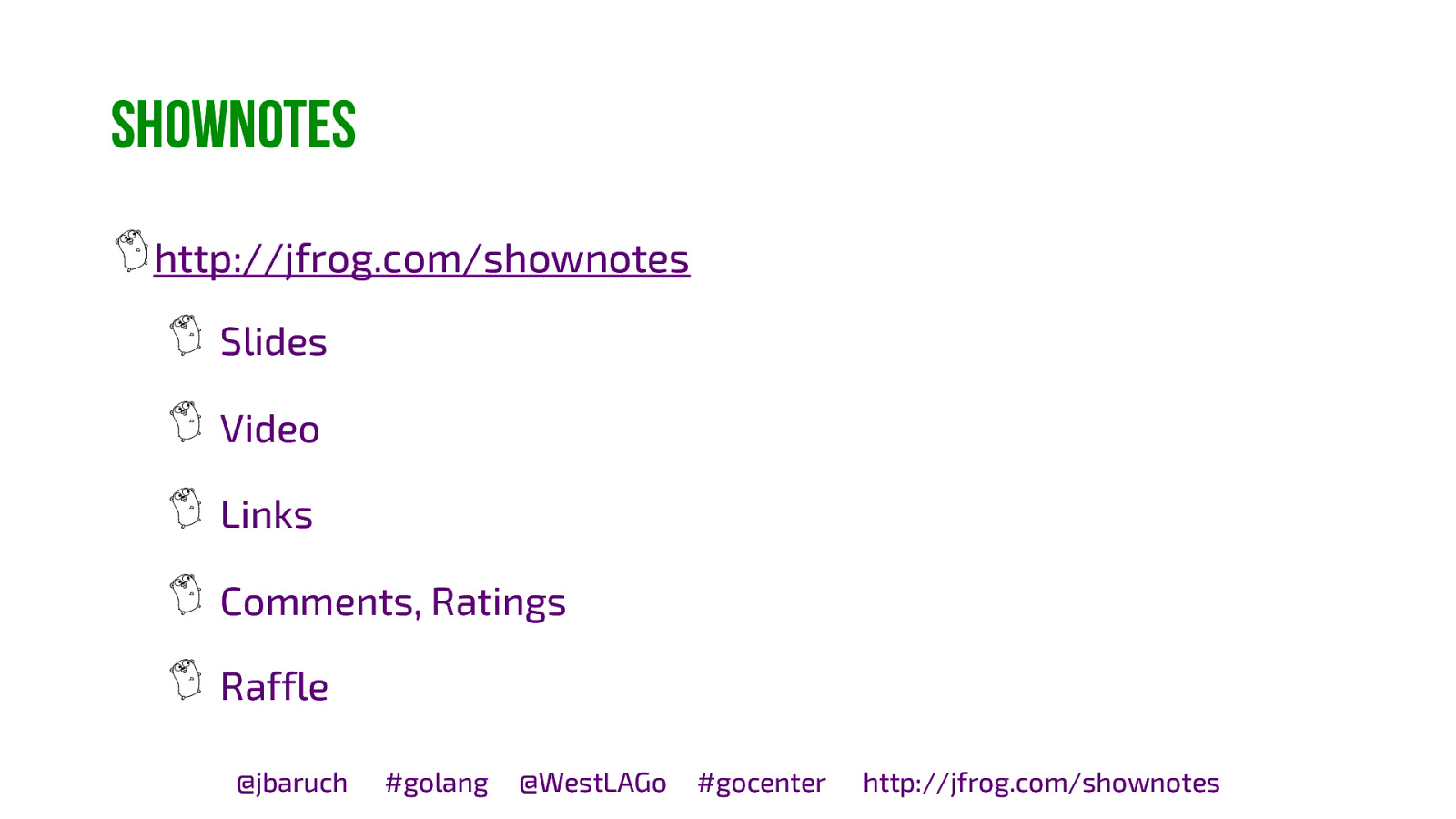
shownotes http://jfrog.com/shownotes Slides Video Links Comments, Ratings Raffle @jbaruch #golang @WestLAGo #gocenter http://jfrog.com/shownotes
Slide 7

Why we have a problem? @jbaruch #golang @WestLAGo #gocenter http://jfrog.com/shownotes
Slide 8

Why we have a problem? @jbaruch #golang @WestLAGo #gocenter http://jfrog.com/shownotes
Slide 9

Dependencies are sources Remote import is a VCS path Dump everything together into one source tree (GOPATH) Simple solution! Compile Profit @jbaruch #golang @WestLAGo #gocenter http://jfrog.com/shownotes
Slide 10

@jbaruch #golang @WestLAGo #gocenter http://jfrog.com/shownotes
Slide 11

Know which dependencies do I use? Know which dependencies did you use? Know which dependencies should I use? But… how do i… Know is it our code that I am editing right now? WTF is going on?! @jbaruch #golang @WestLAGo #gocenter http://jfrog.com/shownotes
Slide 12
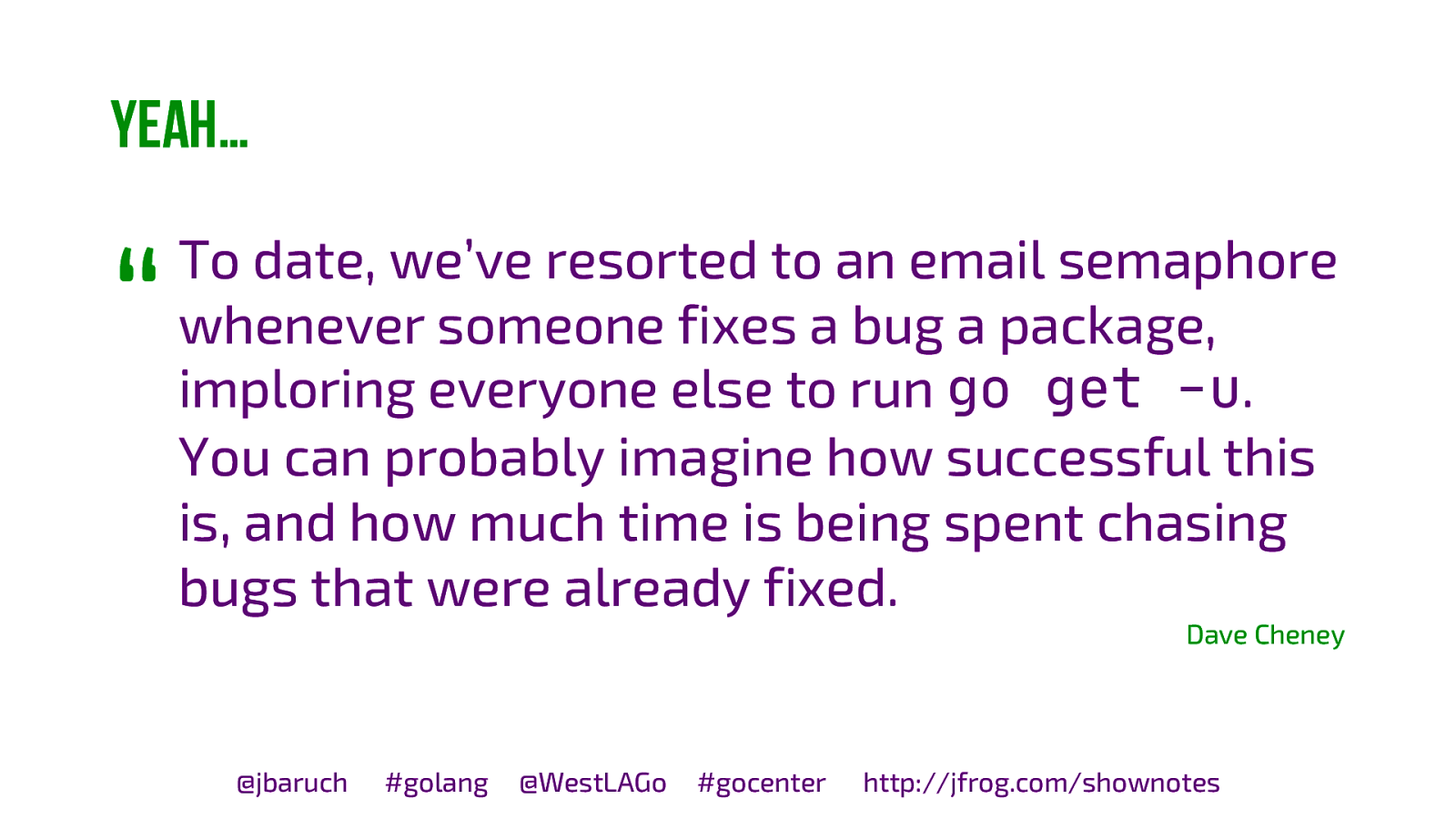
Yeah… “ To date, we’ve resorted to an email semaphore whenever someone fixes a bug a package, imploring everyone else to run go get -u. You can probably imagine how successful this is, and how much time is being spent chasing bugs that were already fixed. Dave Cheney @jbaruch #golang @WestLAGo #gocenter http://jfrog.com/shownotes
Slide 13
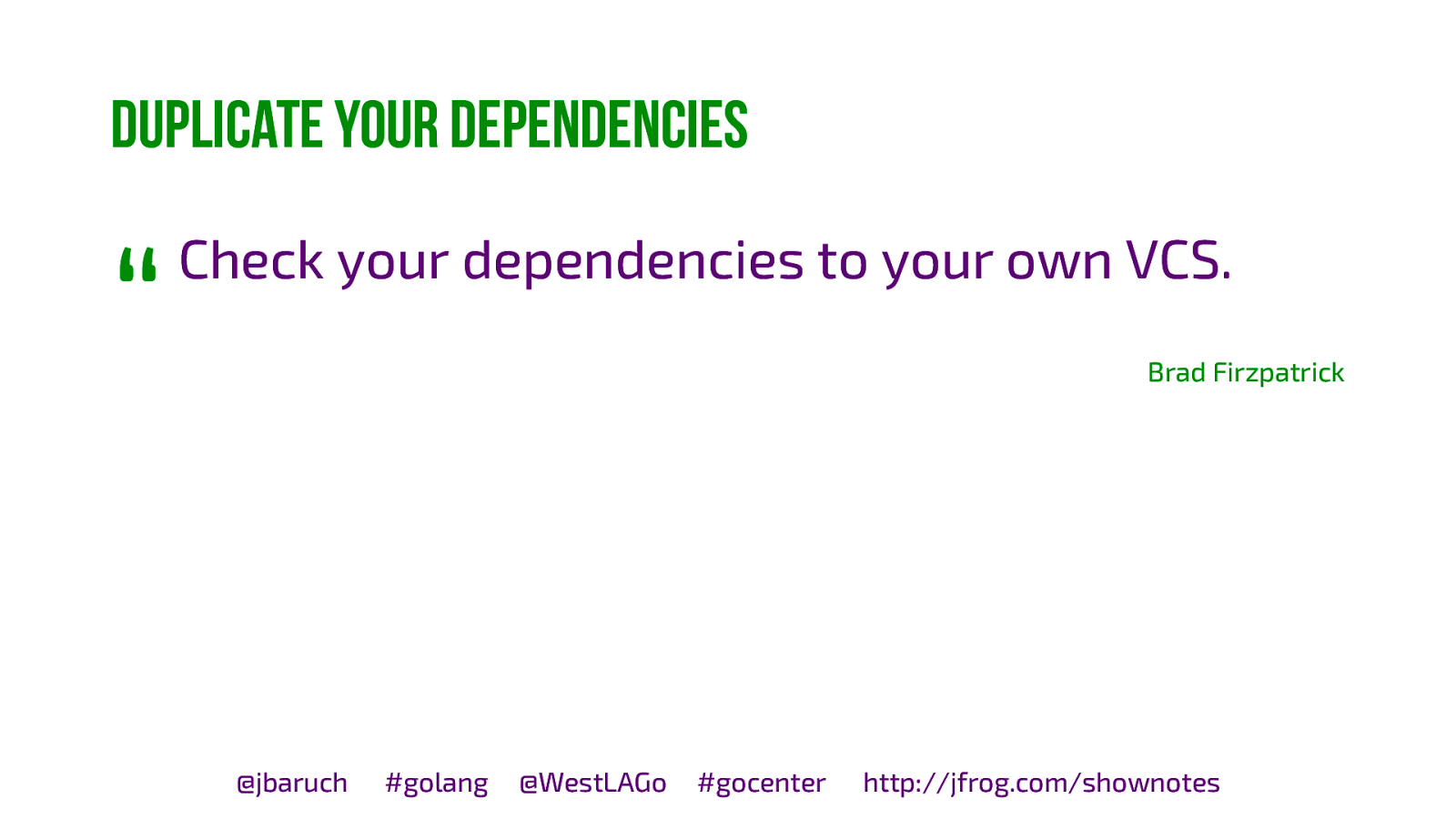
Duplicate your dependencies “ Check your dependencies to your own VCS. Brad Firzpatrick @jbaruch #golang @WestLAGo #gocenter http://jfrog.com/shownotes
Slide 14
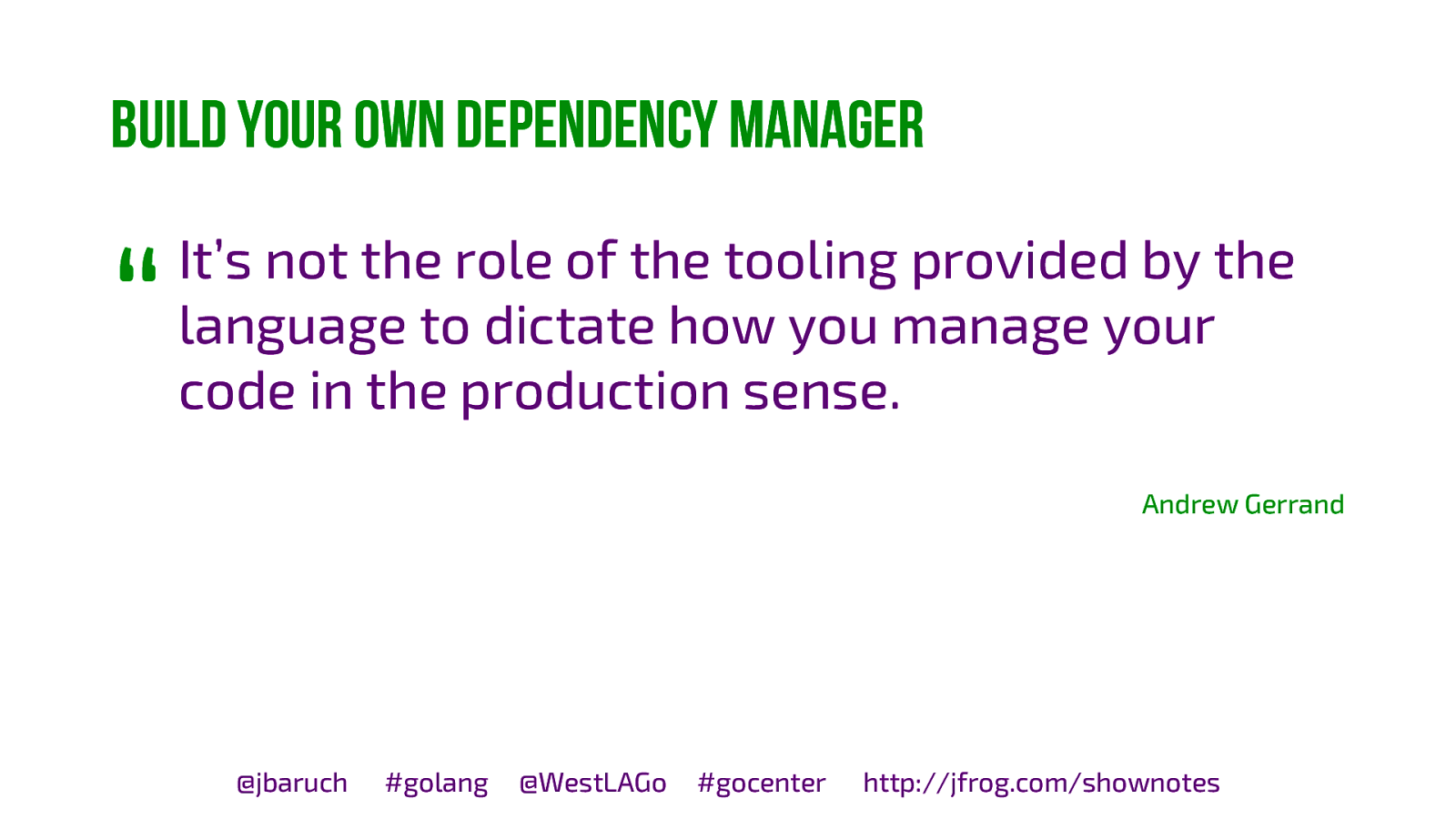
Build your own dependency manager “ It’s not the role of the tooling provided by the language to dictate how you manage your code in the production sense. Andrew Gerrand @jbaruch #golang @WestLAGo #gocenter http://jfrog.com/shownotes
Slide 15

We expect you to already have a homegrown dependency manager “ If you need to build any tooling around what Go uses (Git, Mercurial, Bazaar), you already understand those tools, so it should be straightforward to integrate with whatever system you have. Andrew Gerrand @jbaruch #golang @WestLAGo #gocenter http://jfrog.com/shownotes
Slide 16
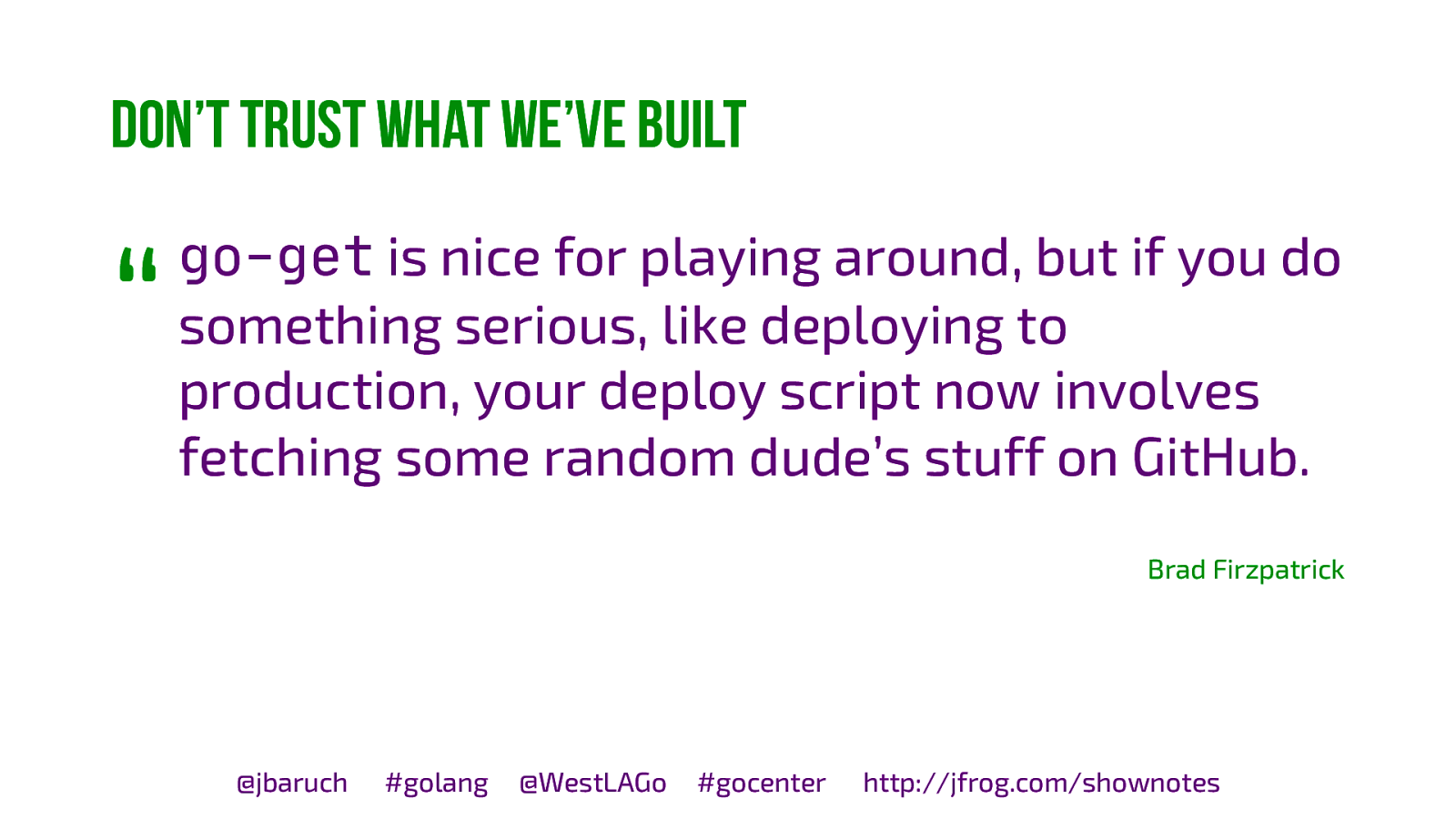
Don’t trust what we’ve built “ go-get is nice for playing around, but if you do something serious, like deploying to production, your deploy script now involves fetching some random dude’s stuff on GitHub. Brad Firzpatrick @jbaruch #golang @WestLAGo #gocenter http://jfrog.com/shownotes
Slide 17

Slide 18

godeps.json dependencies.tsv govendor, govend, goven, gv quiz time! trash, garbage, rubbish Weapons manufacturer @jbaruch #golang @WestLAGo #gocenter http://jfrog.com/shownotes
Slide 19

GOPATH + VENDORING = 💖 @jbaruch #golang @WestLAGo #gocenter http://jfrog.com/shownotes
Slide 20

GOPATH, The proud son of the monorepo
Slide 21
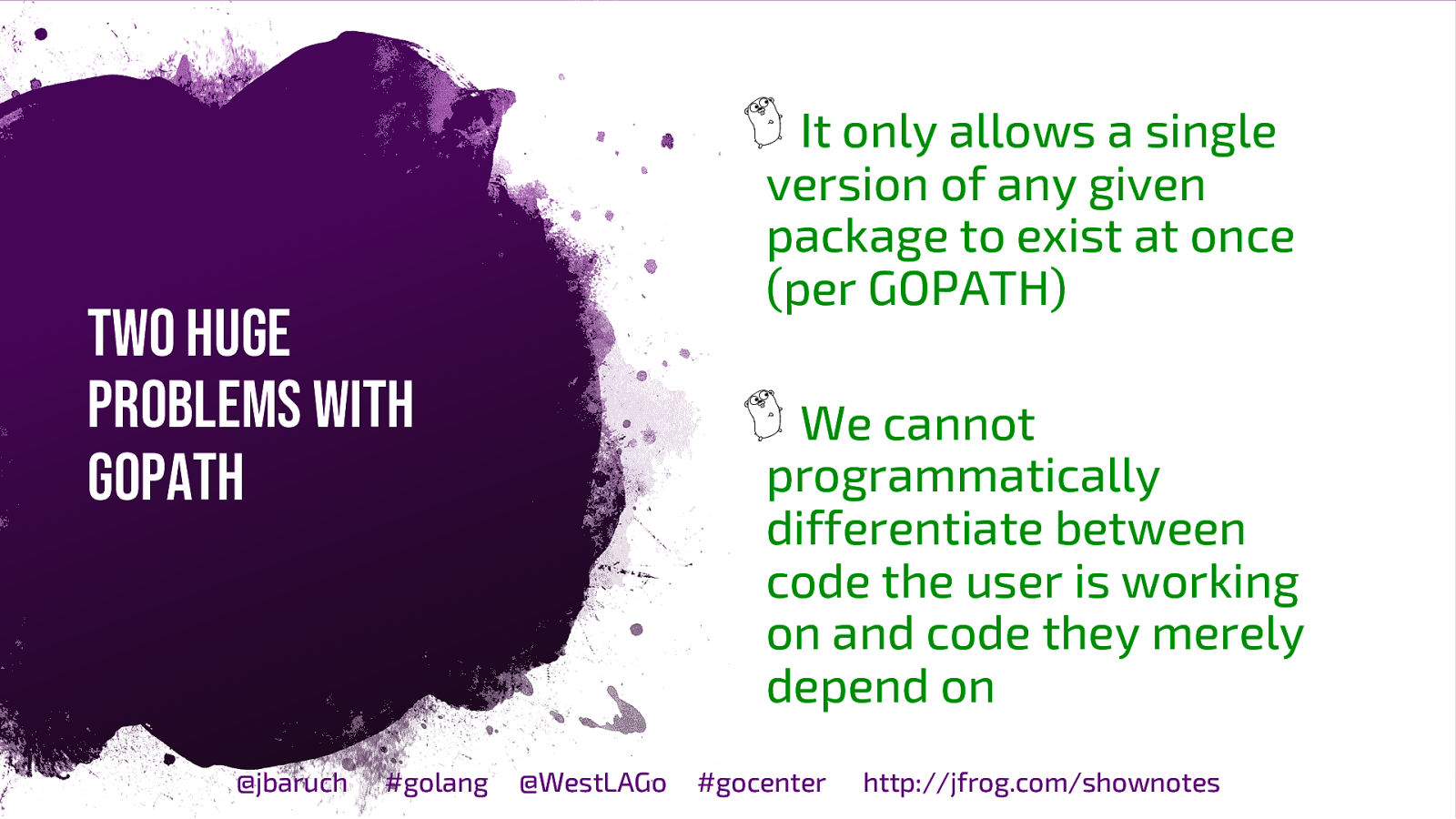
It only allows a single version of any given package to exist at once (per GOPATH) Two huge problems with gopath @jbaruch #golang We cannot programmatically differentiate between code the user is working on and code they merely depend on @WestLAGo #gocenter http://jfrog.com/shownotes
Slide 22
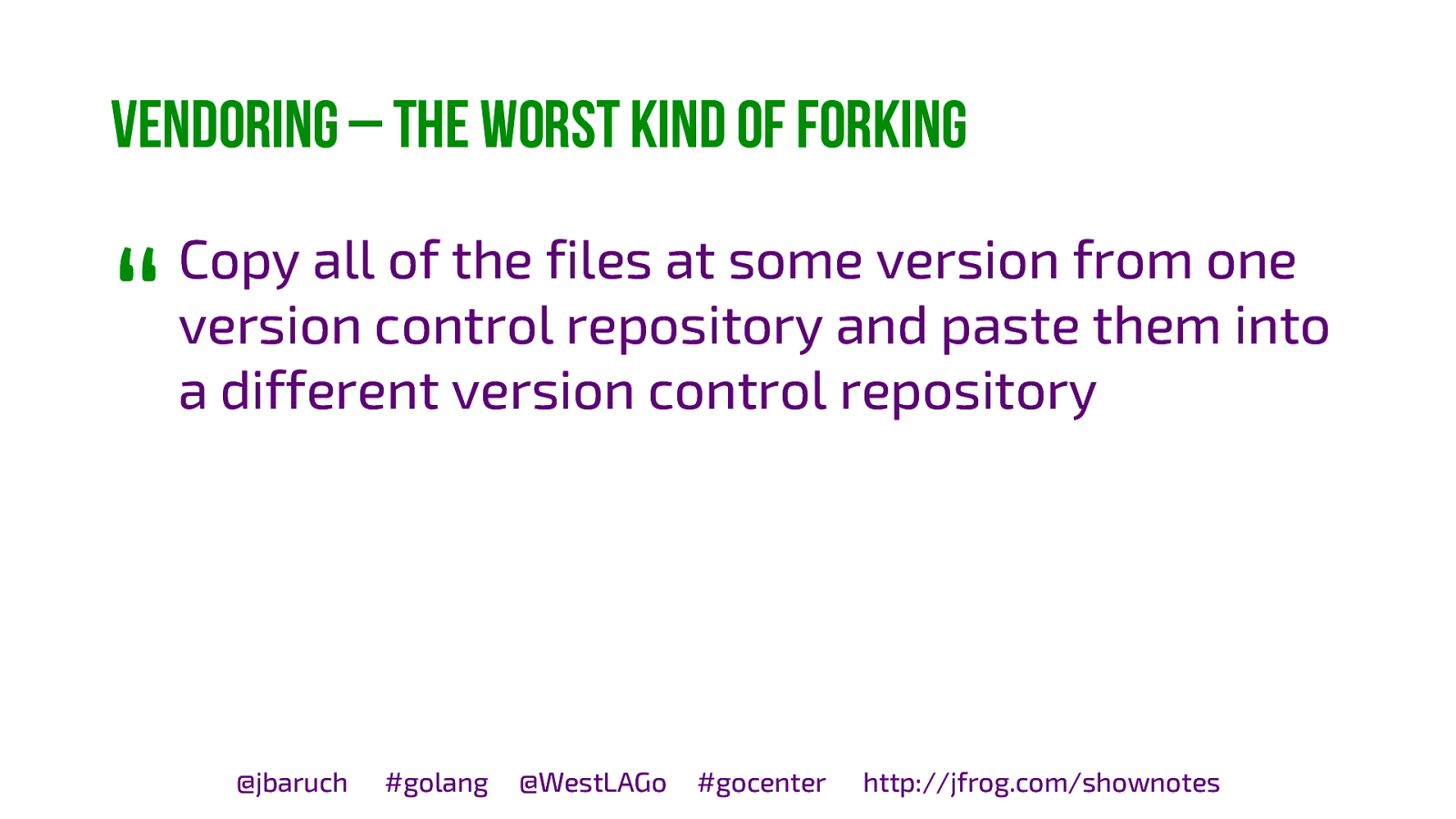
Vendoring – the worst kind of forking “ Copy all of the files at some version from one version control repository and paste them into a different version control repository @jbaruch #golang @WestLAGo #gocenter http://jfrog.com/shownotes
Slide 23
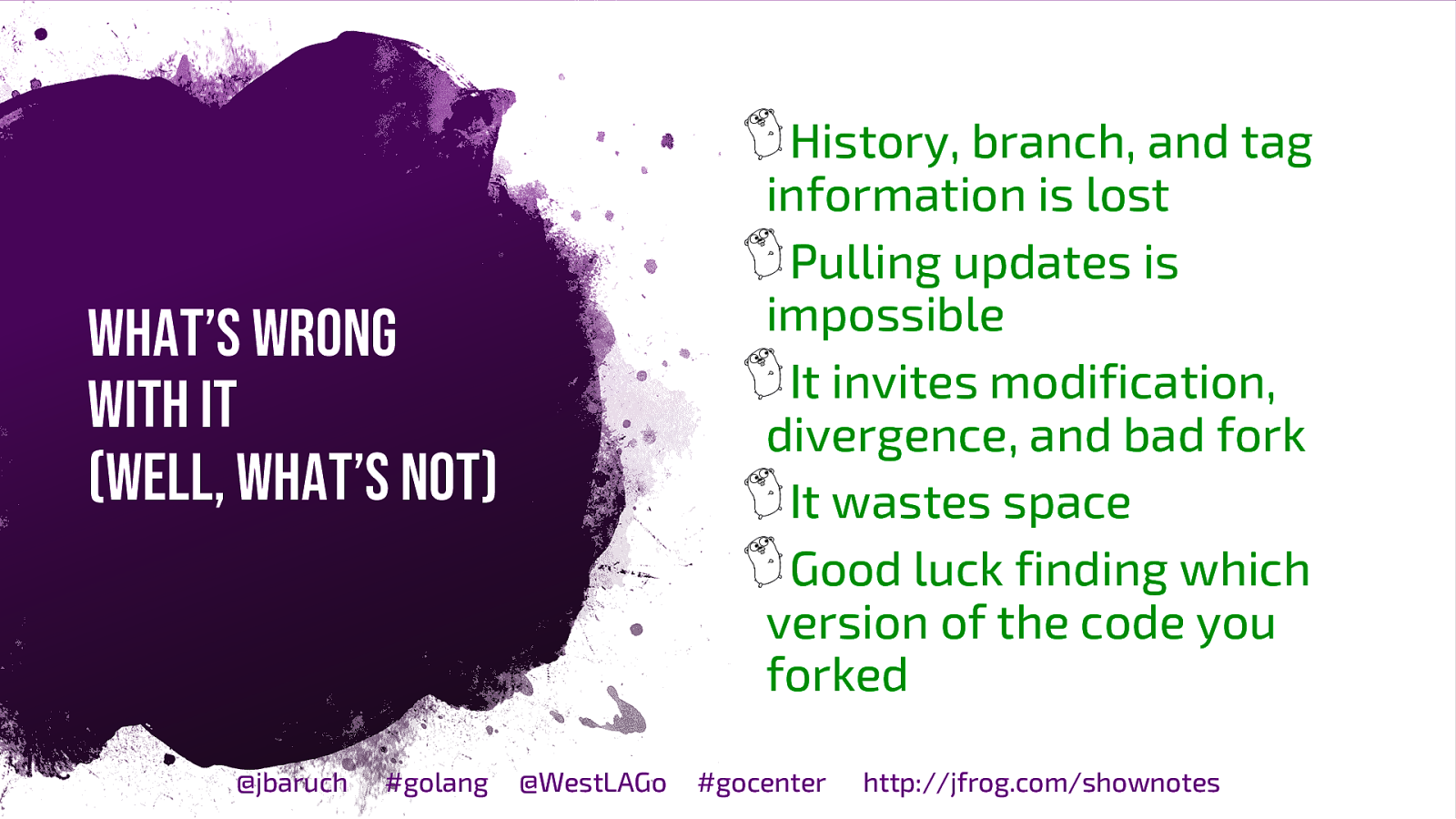
History, branch, and tag information is lost Pulling updates is impossible It invites modification, divergence, and bad fork It wastes space Good luck finding which version of the code you forked What’s wrong with it (well, what’s not) @jbaruch #golang @WestLAGo #gocenter http://jfrog.com/shownotes
Slide 24

Slide 25
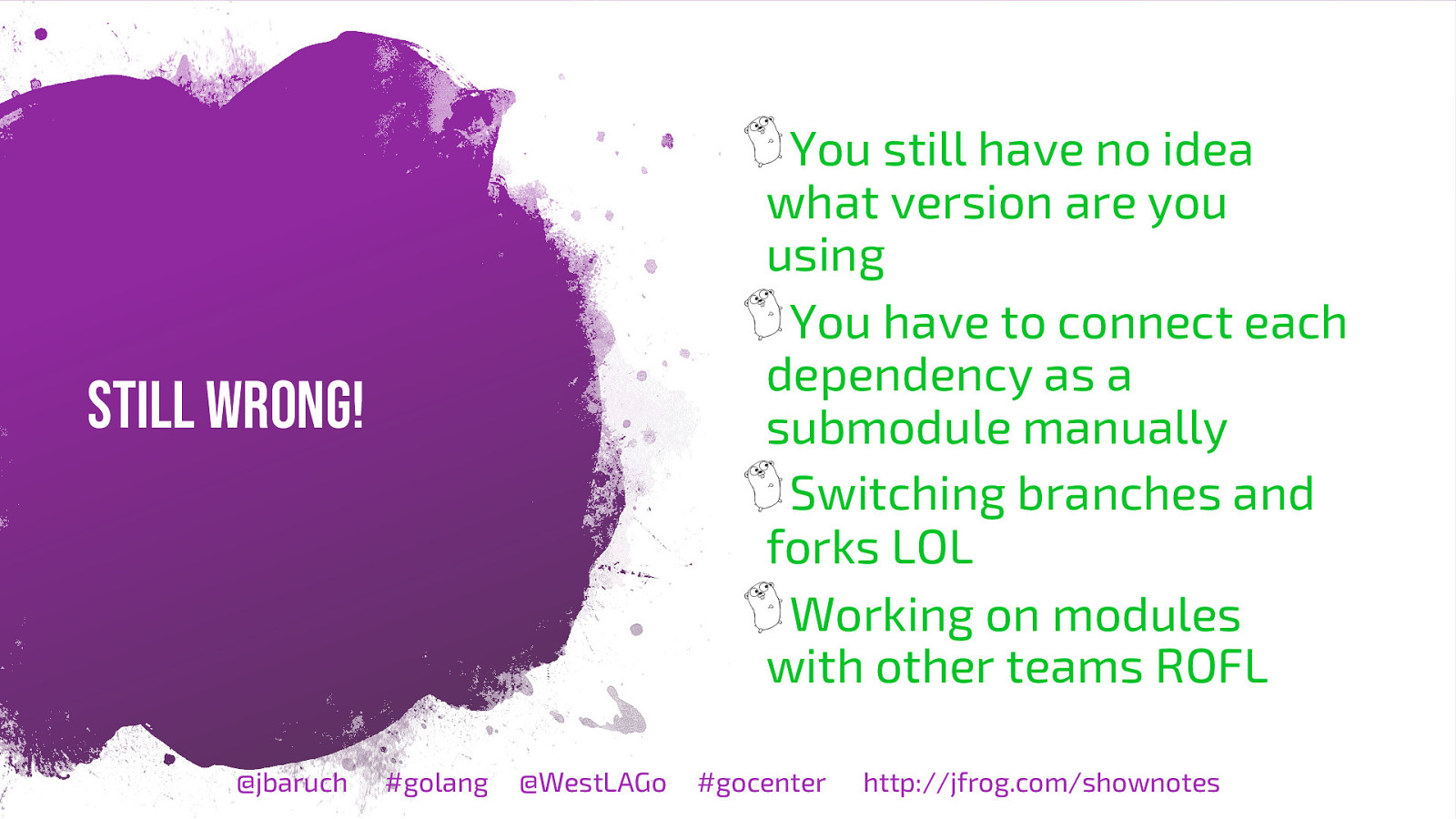
You still have no idea what version are you using You have to connect each dependency as a submodule manually Switching branches and forks LOL Working on modules with other teams ROFL Still wrong! @jbaruch #golang @WestLAGo #gocenter http://jfrog.com/shownotes
Slide 26
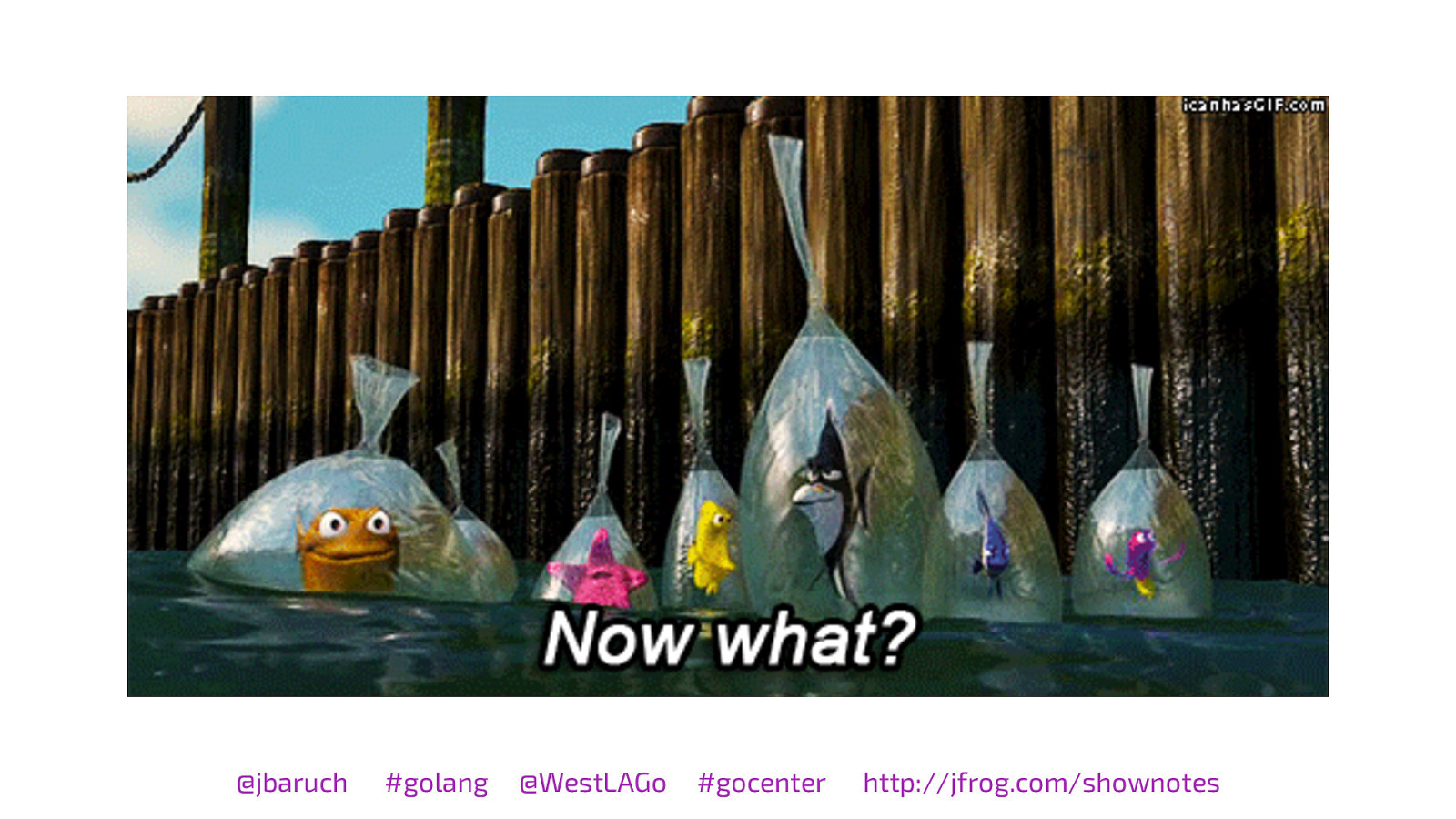
@jbaruch #golang @WestLAGo #gocenter http://jfrog.com/shownotes
Slide 27
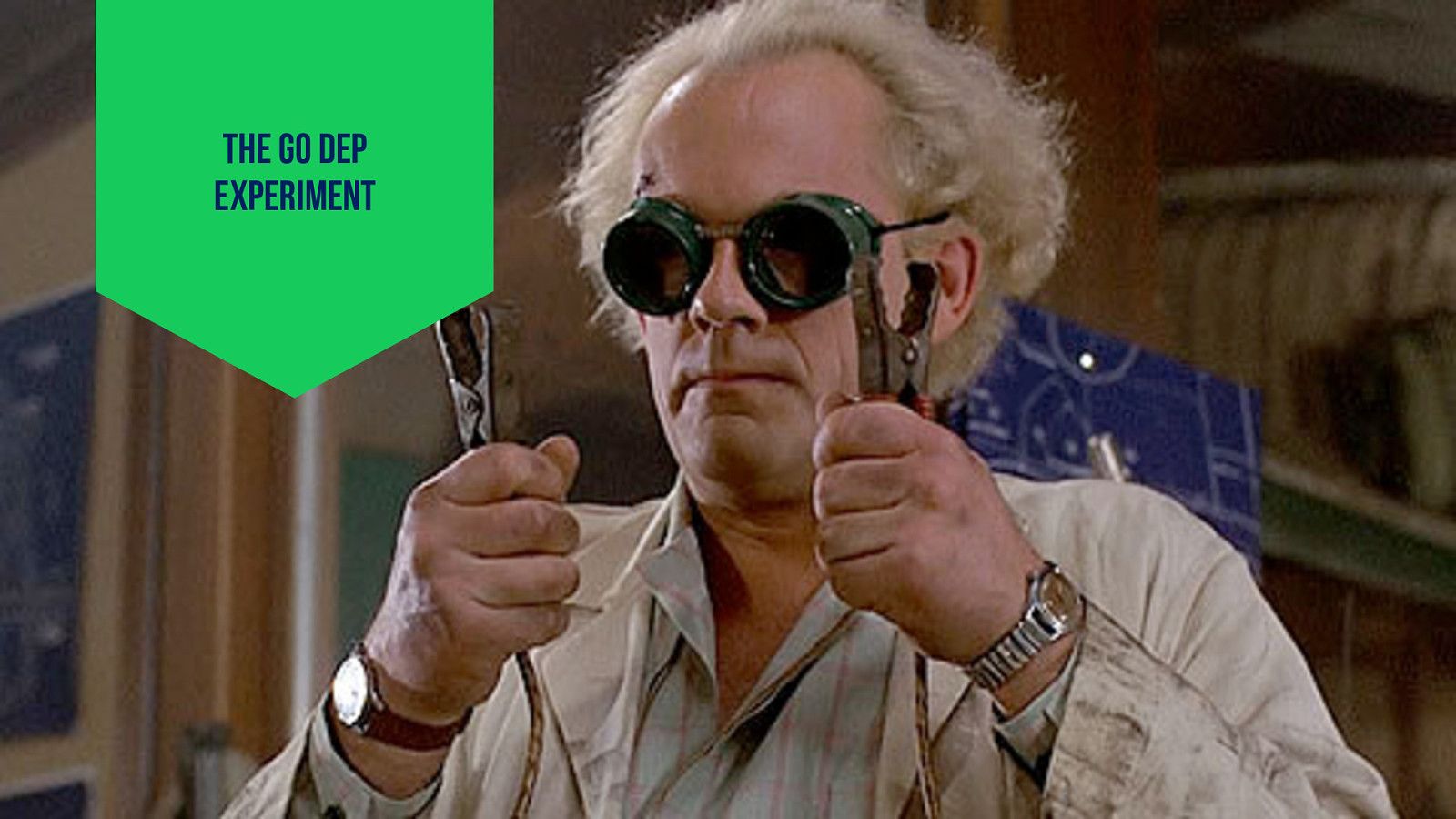
The go dep experiment
Slide 28
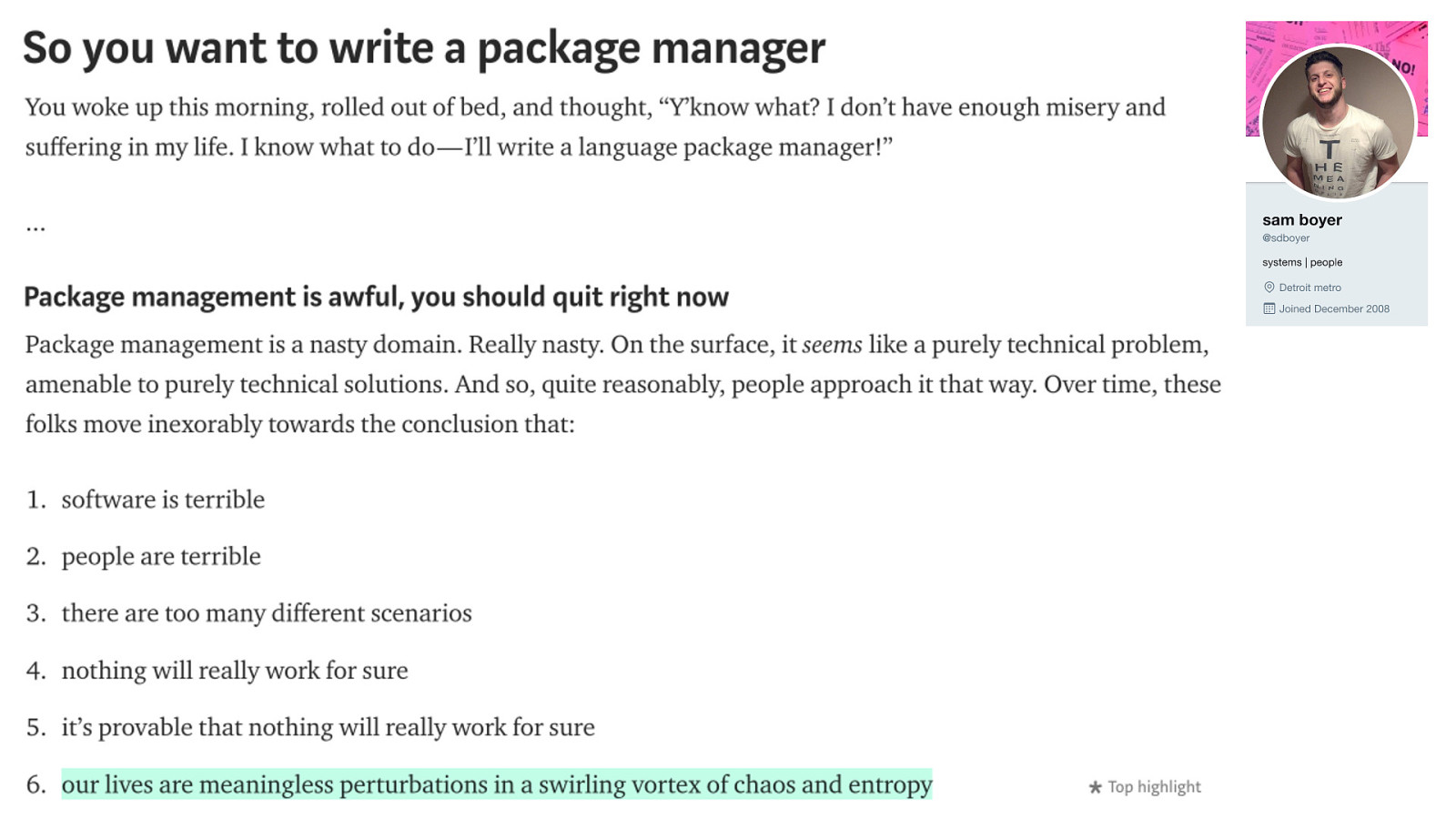
@jbaruch #dockercon jfrog.com/shownotes
Slide 29
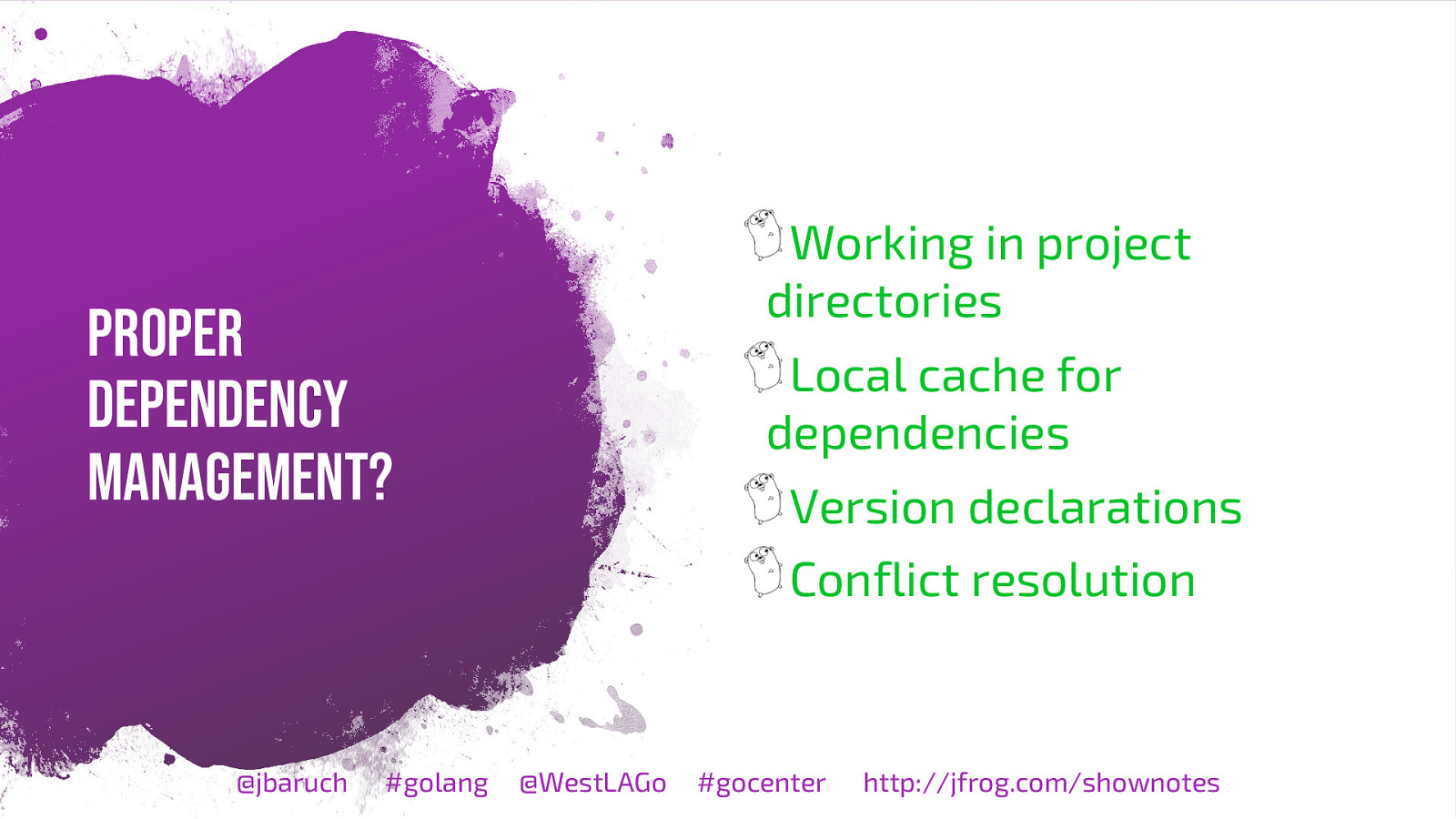
Working in project directories Proper dependency management? Local cache for dependencies Version declarations Conflict resolution @jbaruch #golang @WestLAGo #gocenter http://jfrog.com/shownotes
Slide 30

Conflict on the conflict resolution SAT/SMT vs MVS/SIV
Slide 31

Enter Go modules
Slide 32

Enter go modules @jbaruch #golang @WestLAGo #gocenter http://jfrog.com/shownotes
Slide 33
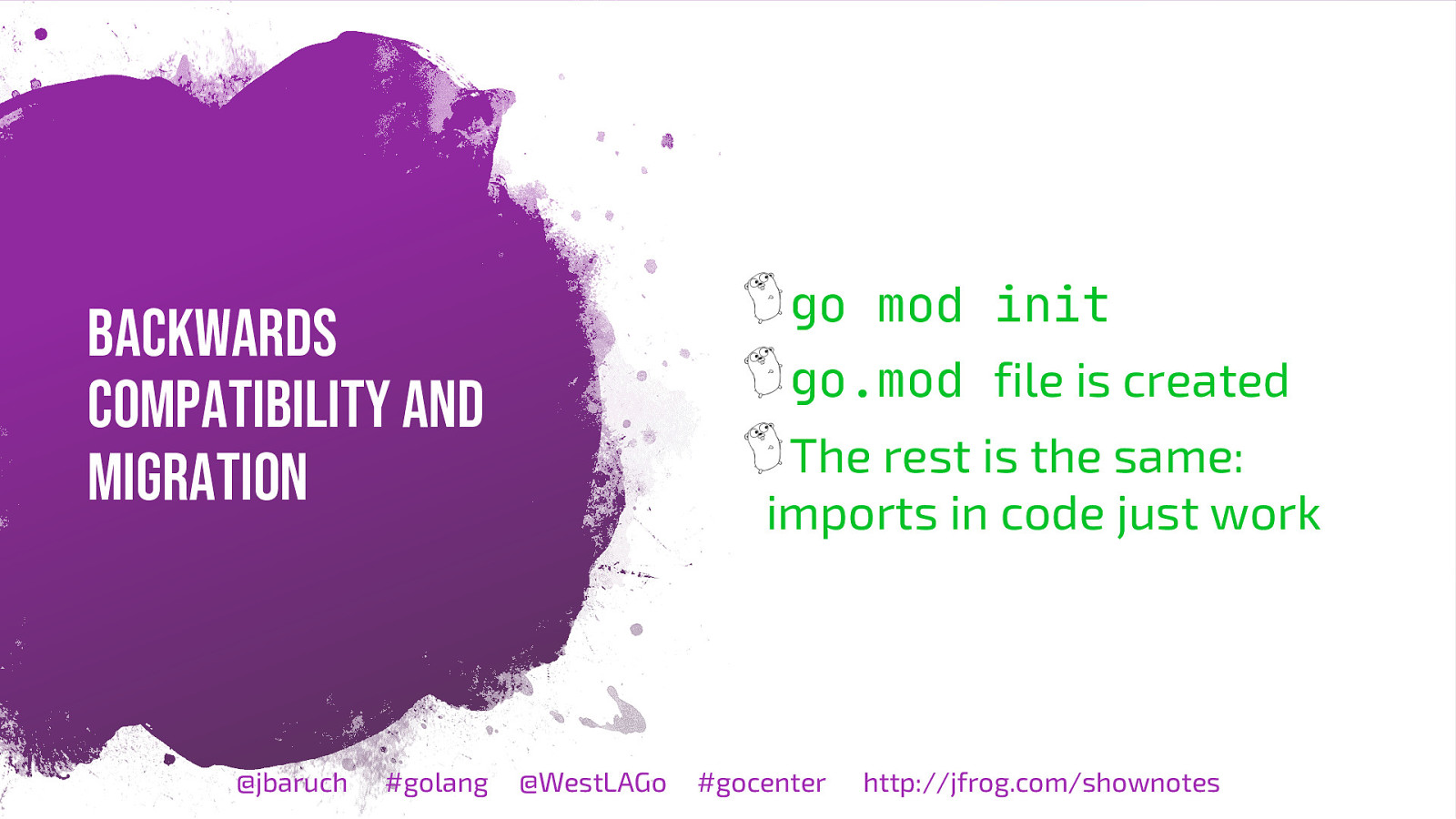
go mod init Backwards compatibility and migration @jbaruch #golang go.mod file is created The rest is the same: imports in code just work @WestLAGo #gocenter http://jfrog.com/shownotes
Slide 34

That’s some serious magic… @jbaruch #golang @WestLAGo #gocenter http://jfrog.com/shownotes
Slide 35
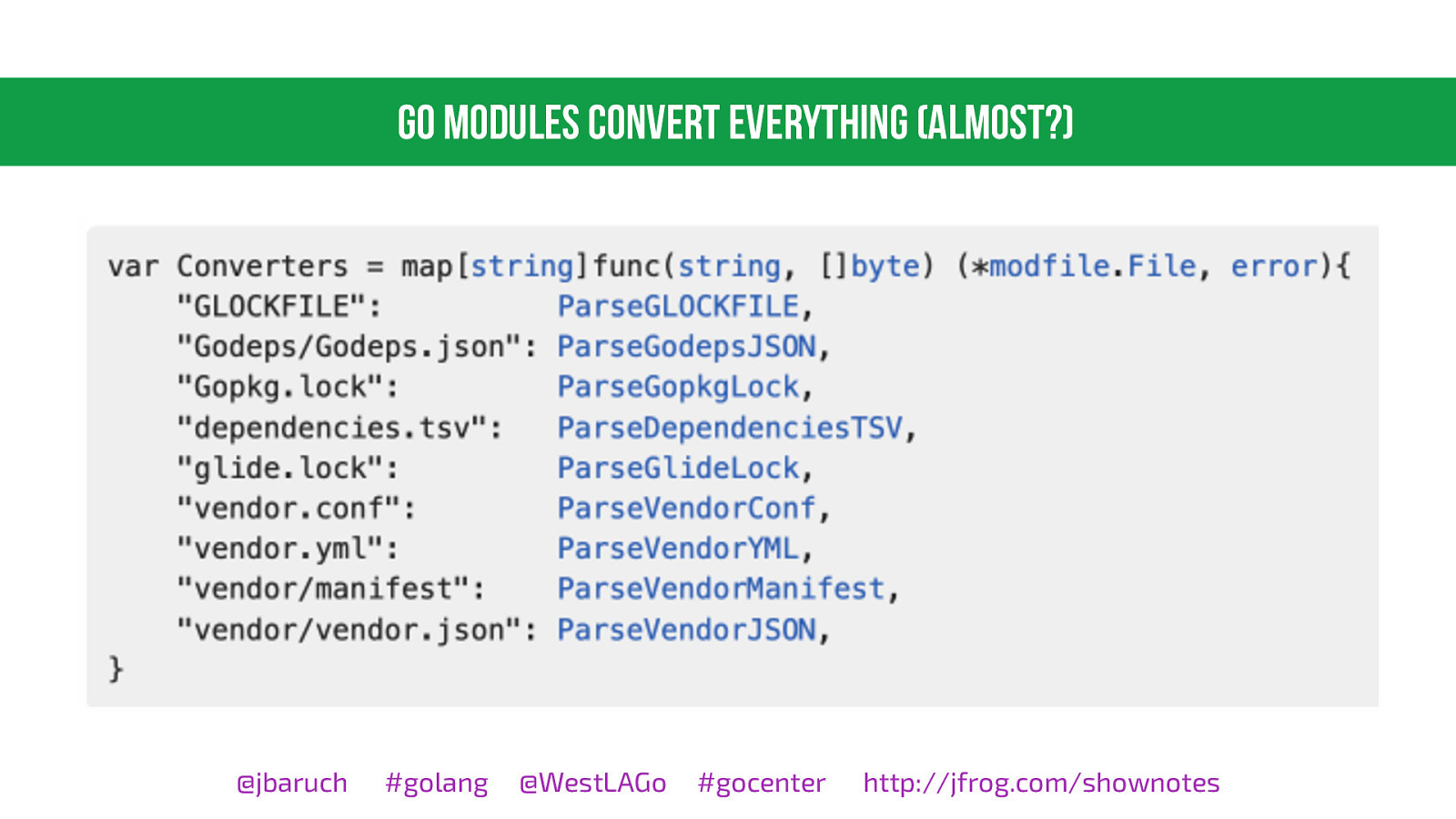
Go modules convert everything (almost?) @jbaruch #golang @WestLAGo #gocenter http://jfrog.com/shownotes
Slide 36
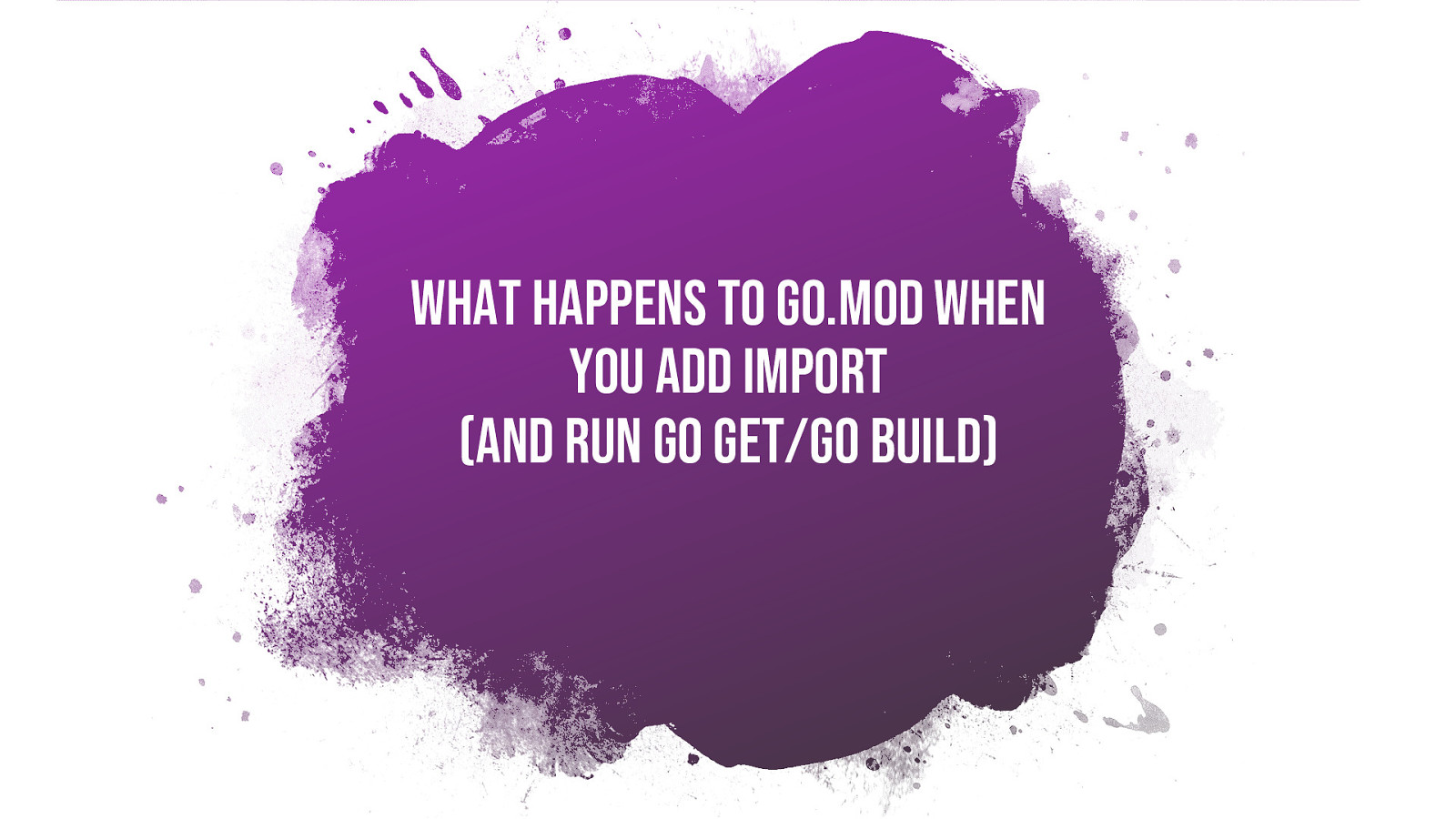
What happens to go.mod when you add import (and run go get/go build)
Slide 37
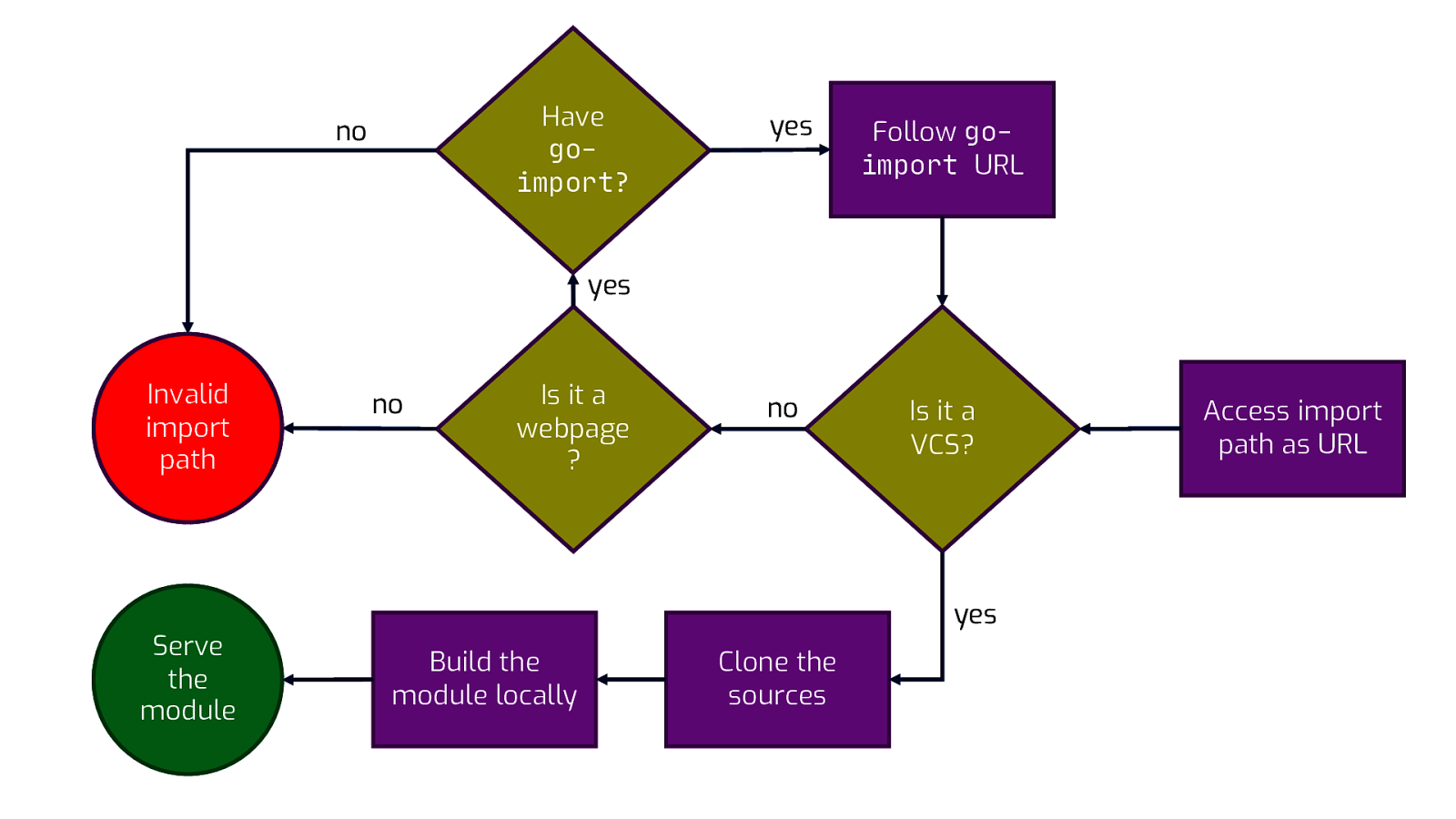
Have goimport? no yes Follow goimport URL yes Invalid import path Serve the module no Is it a webpage ? no Is it a VCS? yes Build the module locally Clone the sources Access import path as URL
Slide 38
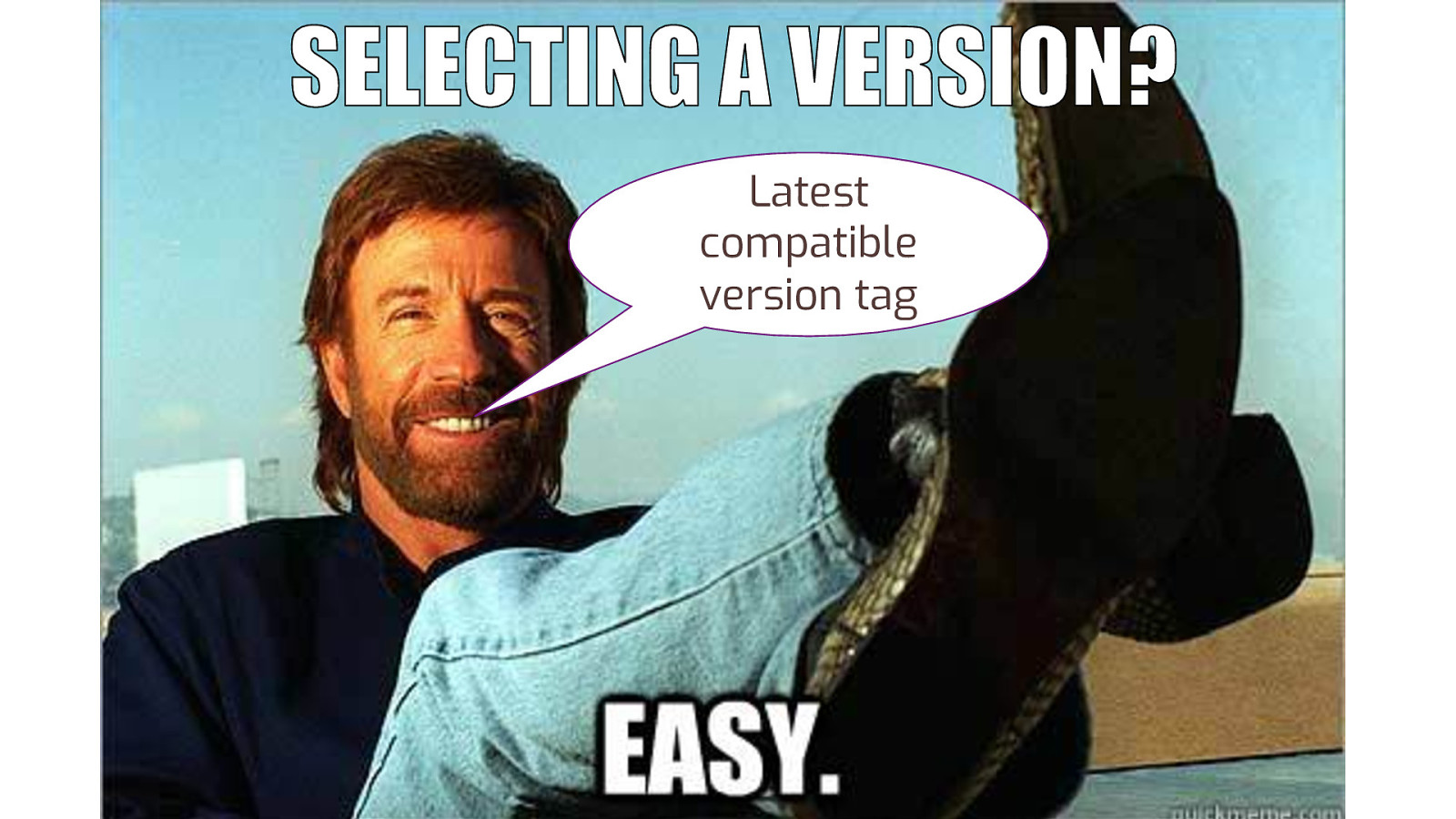
Latest compatible version tag
Slide 39

@jbaruch #golang @WestLAGo #gocenter http://jfrog.com/shownotes
Slide 40
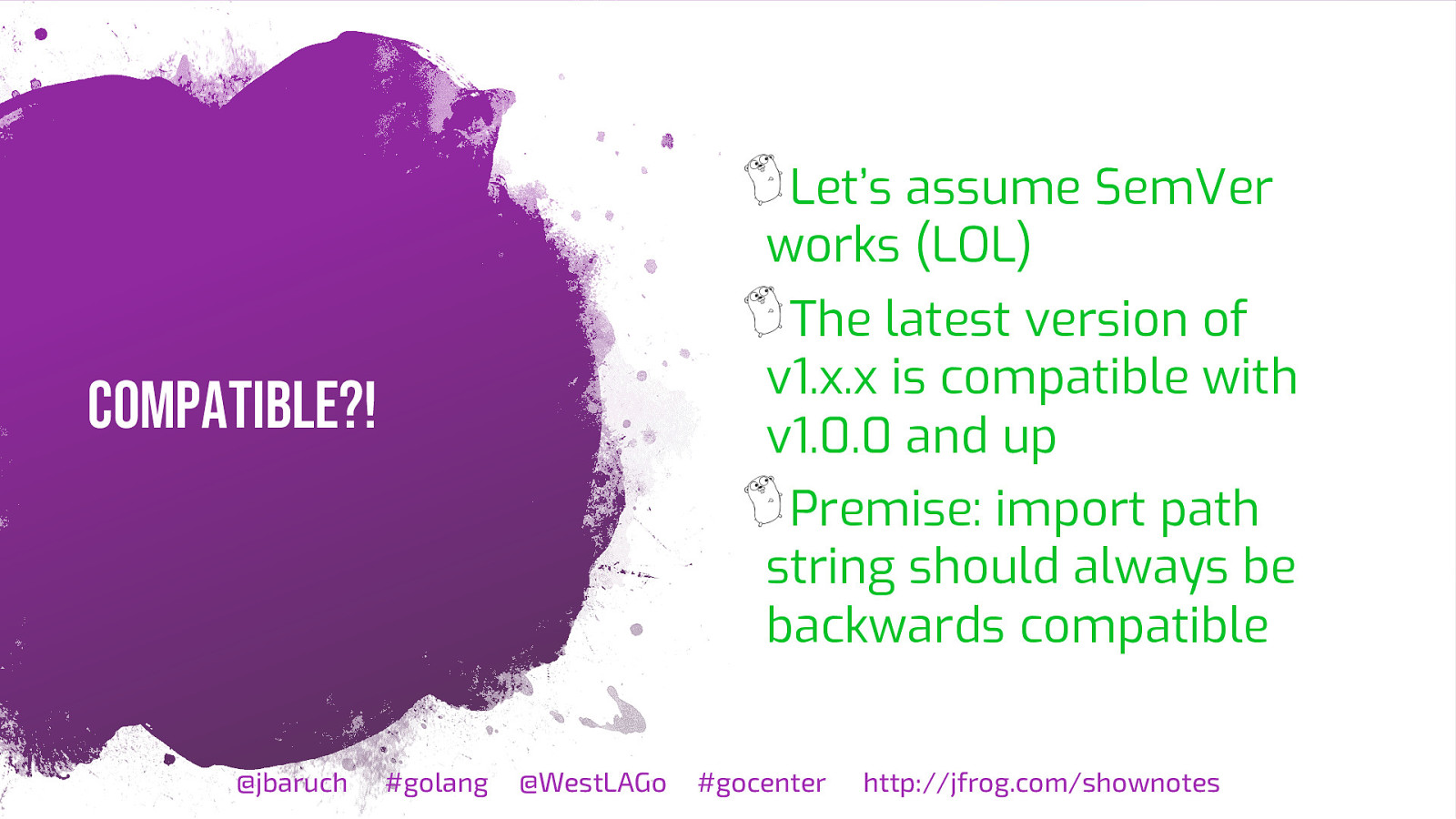
Let’s assume SemVer works (LOL) The latest version of v1.x.x is compatible with v1.0.0 and up Compatible?! Premise: import path string should always be backwards compatible @jbaruch #golang @WestLAGo #gocenter http://jfrog.com/shownotes
Slide 41
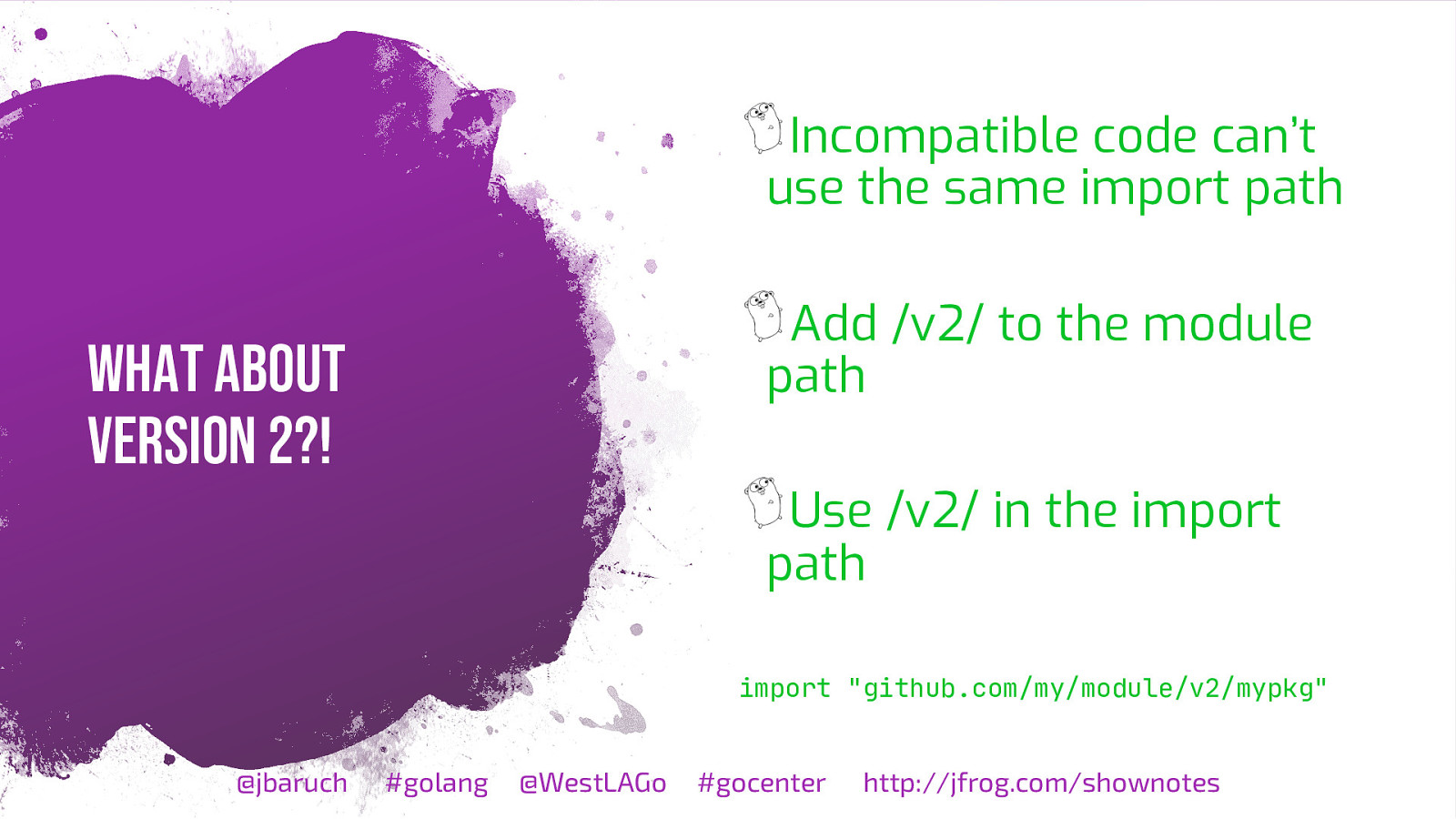
Incompatible code can’t use the same import path Add /v2/ to the module path What about version 2?! Use /v2/ in the import path import “github.com/my/module/v2/mypkg” @jbaruch #golang @WestLAGo #gocenter http://jfrog.com/shownotes
Slide 42
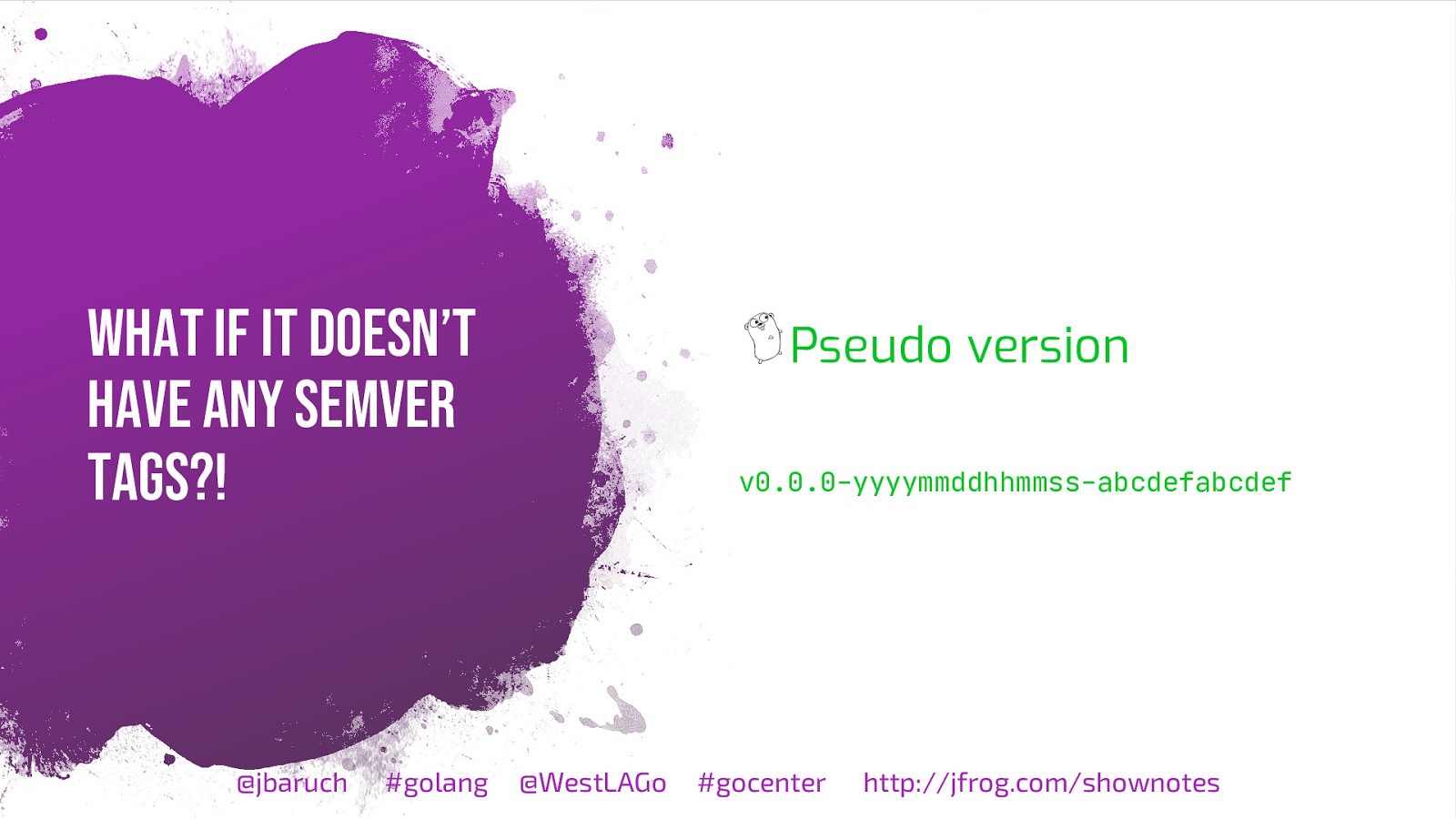
What if it doesn’t have any semver tags?! @jbaruch #golang Pseudo version v0.0.0-yyyymmddhhmmss-abcdefabcdef @WestLAGo #gocenter http://jfrog.com/shownotes
Slide 43
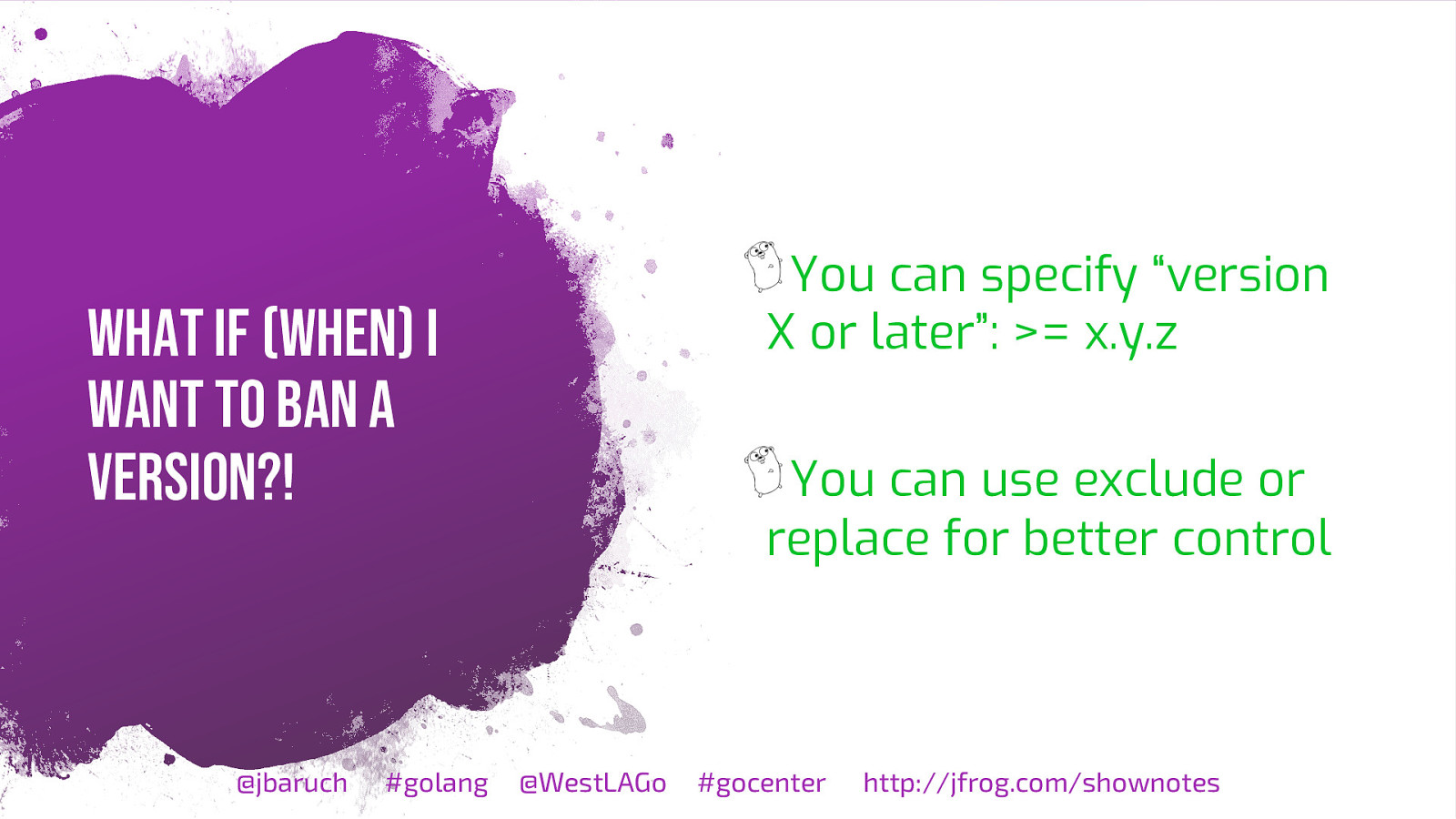
You can specify “version X or later”: >= x.y.z What if (when) I want to ban a version?! @jbaruch #golang You can use exclude or replace for better control @WestLAGo #gocenter http://jfrog.com/shownotes
Slide 44
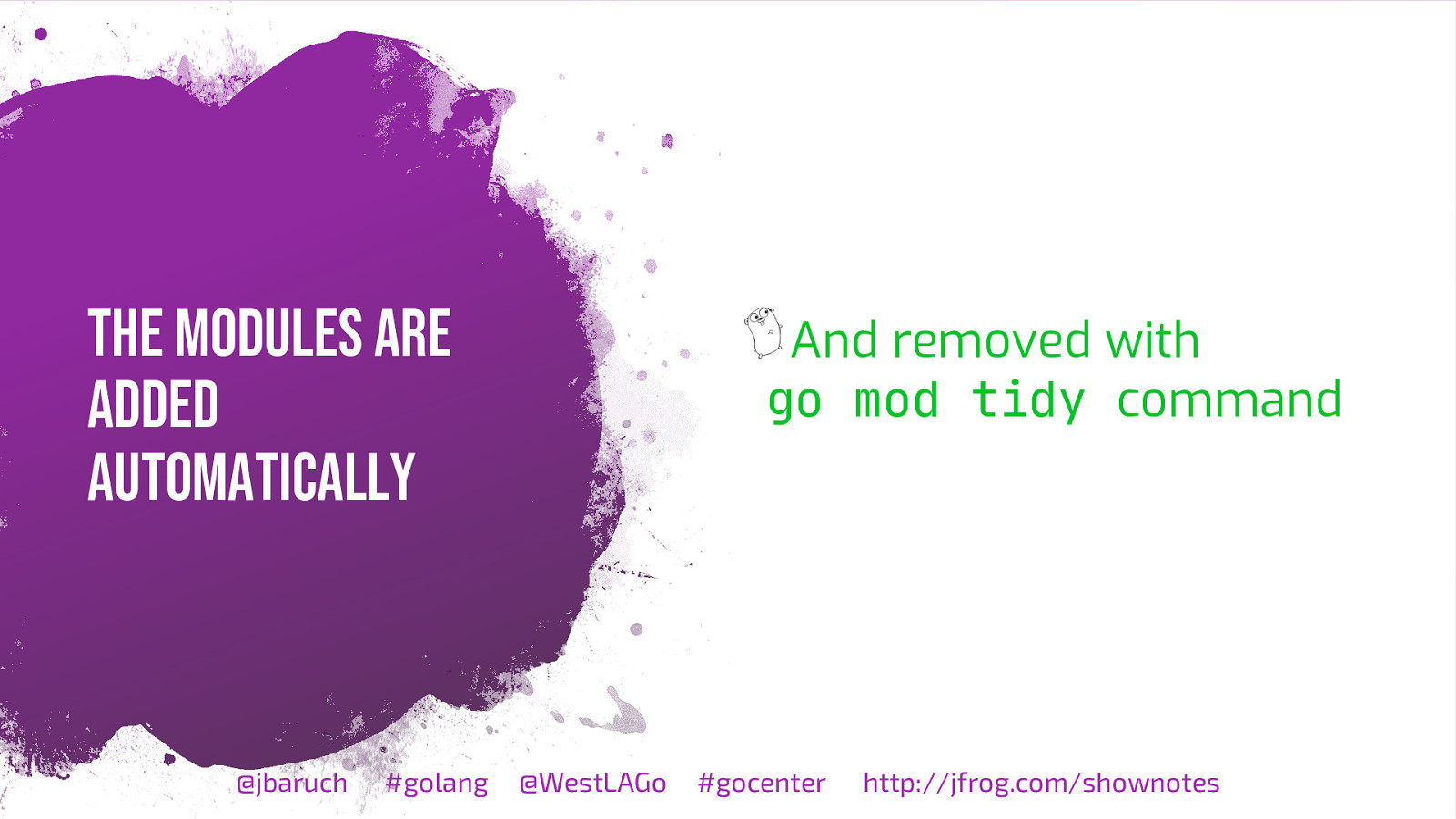
The modules are added automatically @jbaruch #golang And removed with go mod tidy command @WestLAGo #gocenter http://jfrog.com/shownotes
Slide 45
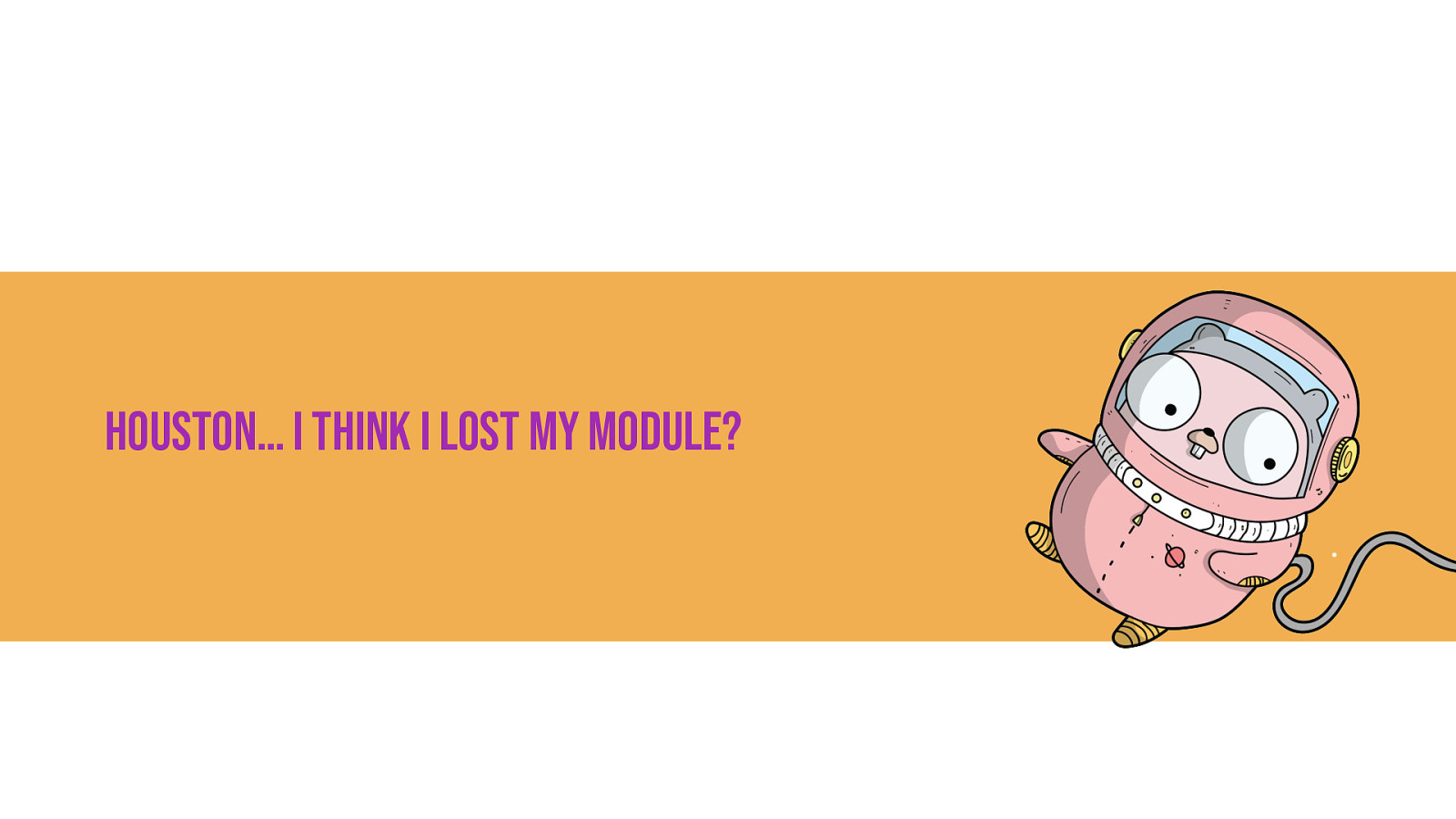
Houston… I think I lost my module?
Slide 46
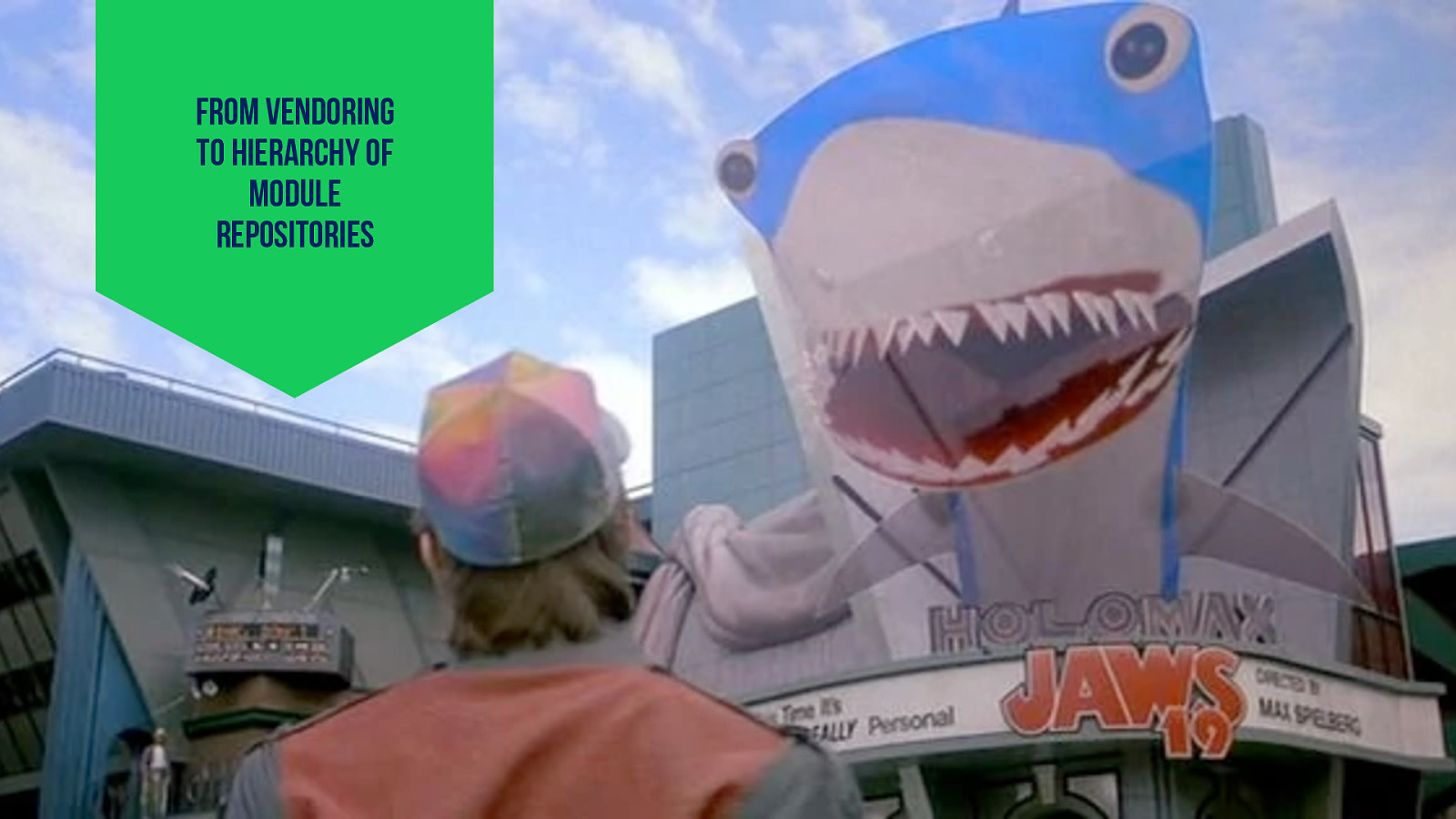
From vendoring to hierarchy of module repositories
Slide 47
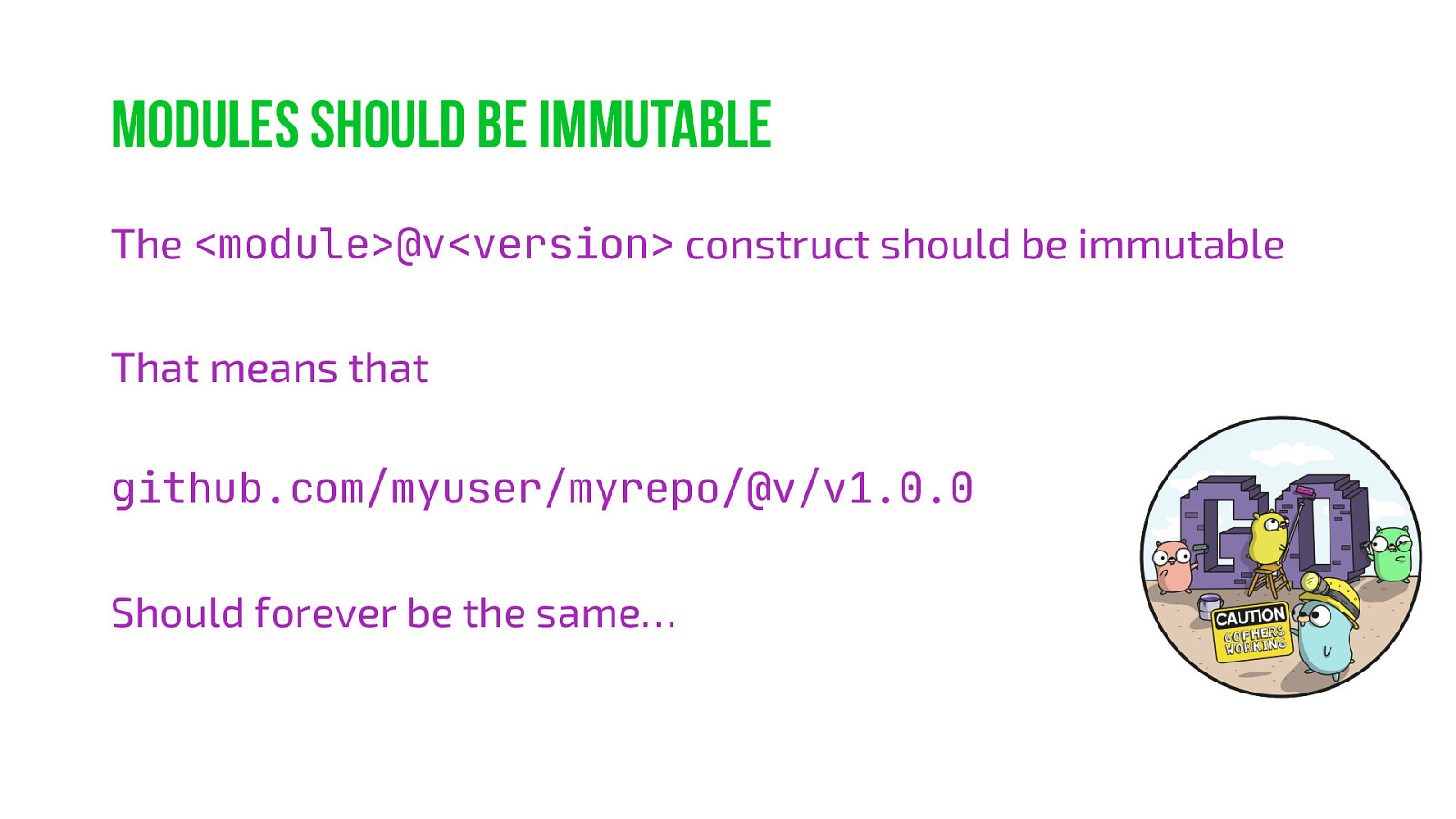
Modules should be immutable The <module>@v<version> construct should be immutable That means that github.com/myuser/myrepo/@v/v1.0.0 Should forever be the same…
Slide 48
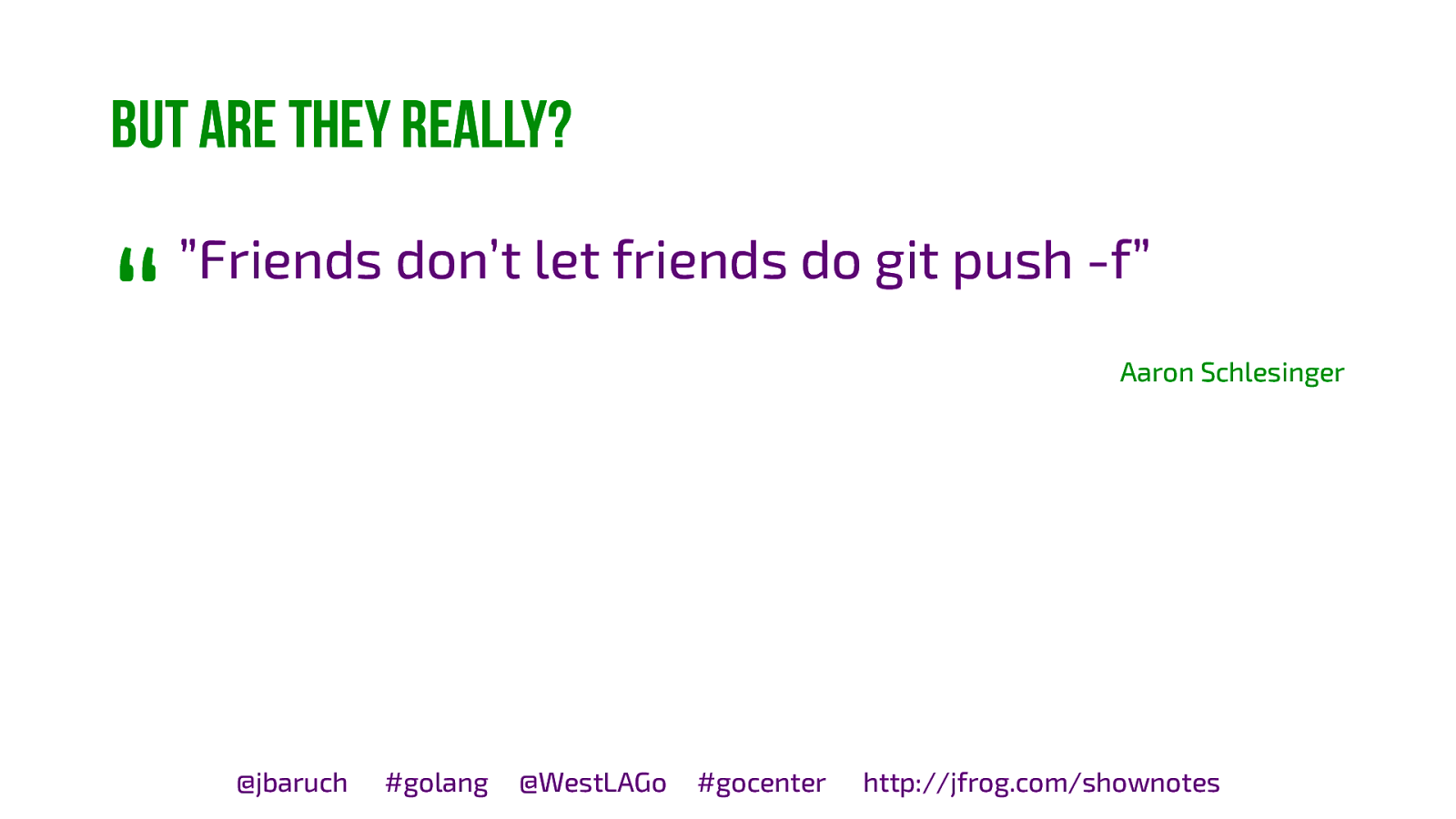
But are they really? “ ”Friends don’t let friends do git push -f” Aaron Schlesinger @jbaruch #golang @WestLAGo #gocenter http://jfrog.com/shownotes
Slide 49
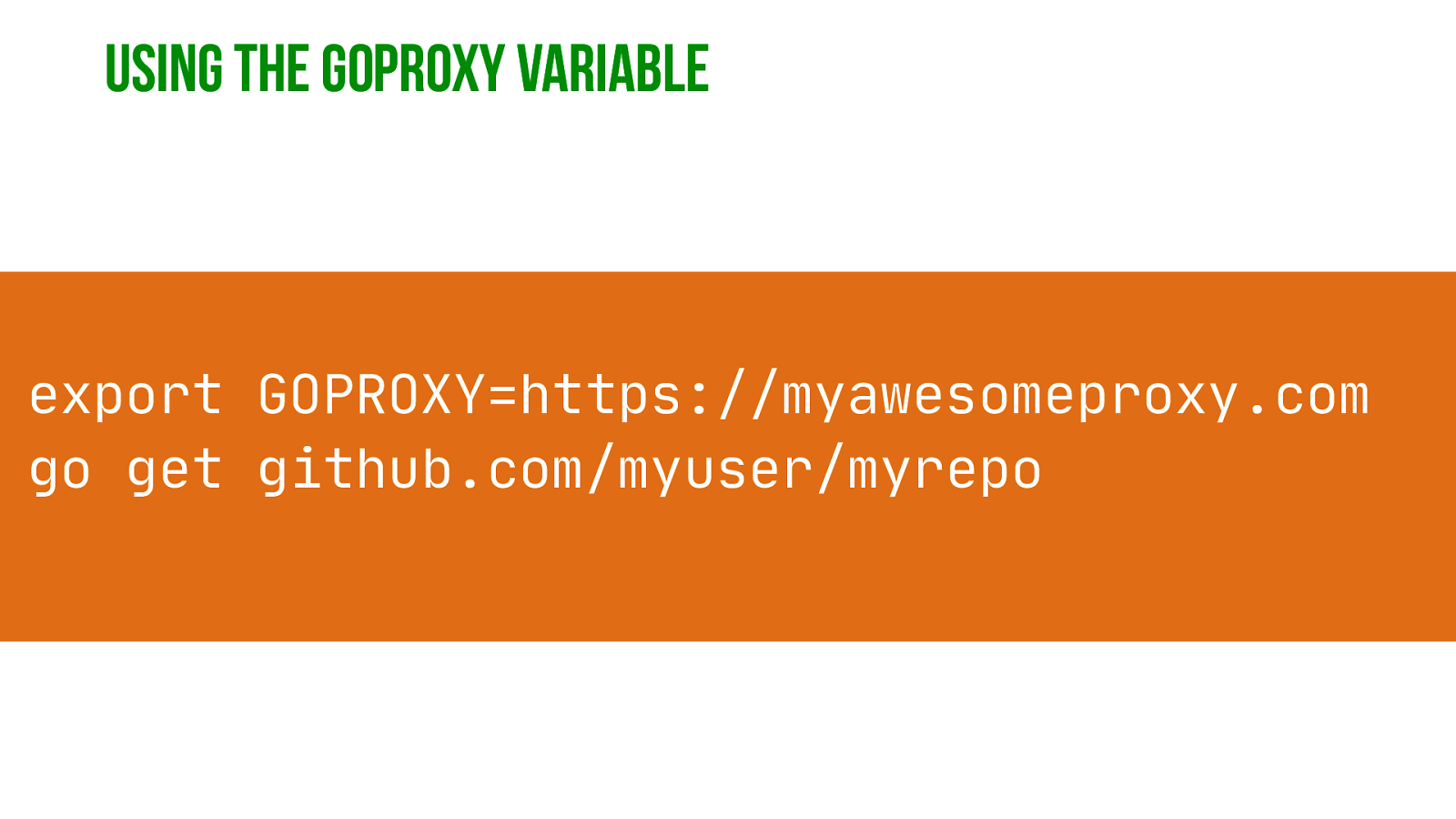
Using the goproxy variable export GOPROXY=https://myawesomeproxy.com go get github.com/myuser/myrepo
Slide 50
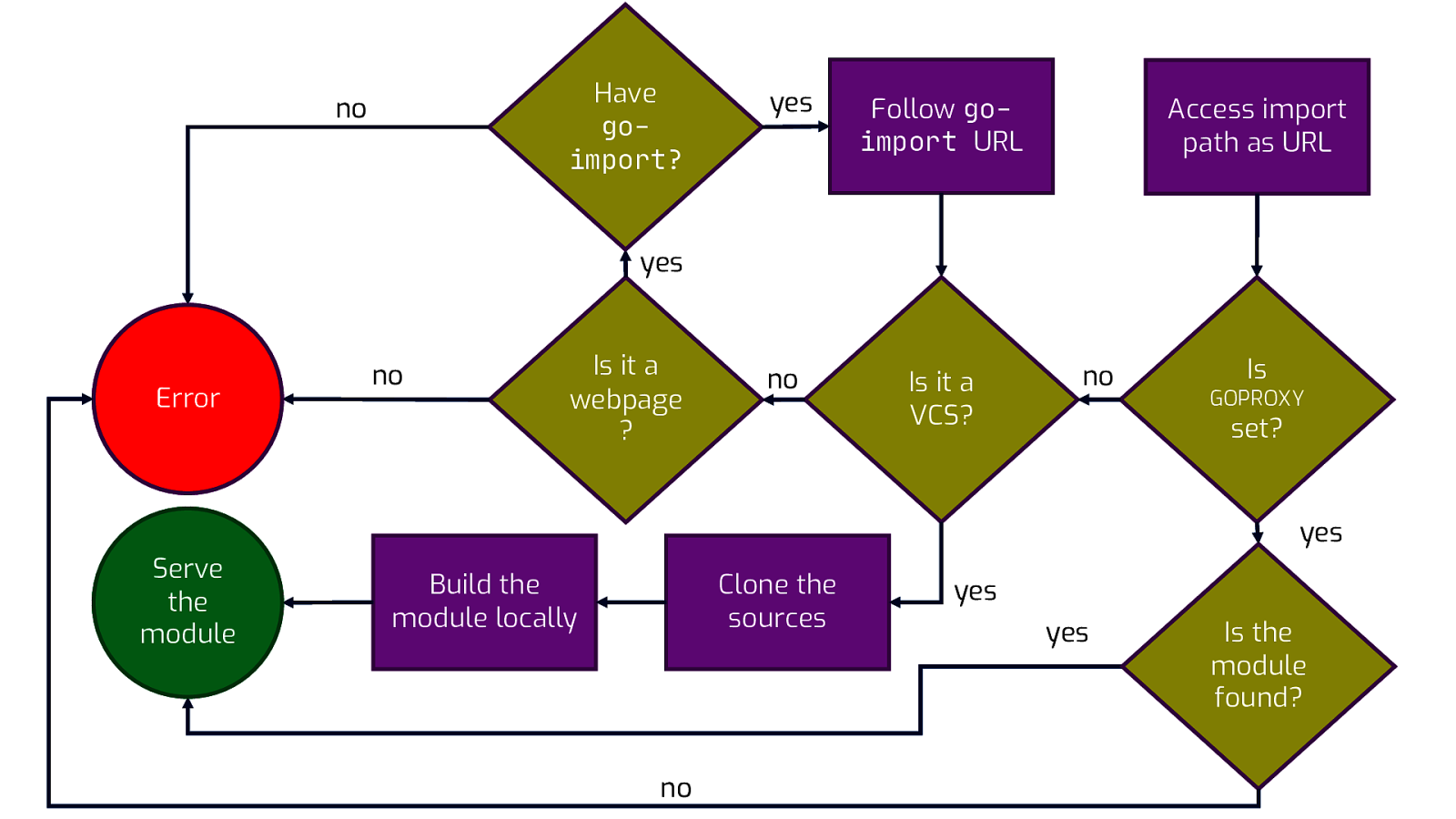
Have goimport? no yes Follow goimport URL Access import path as URL yes Error no Is it a webpage ? no Is it a VCS? no Is GOPROXY set? yes Serve the module Build the module locally Clone the sources no yes yes Is the module found?
Slide 51
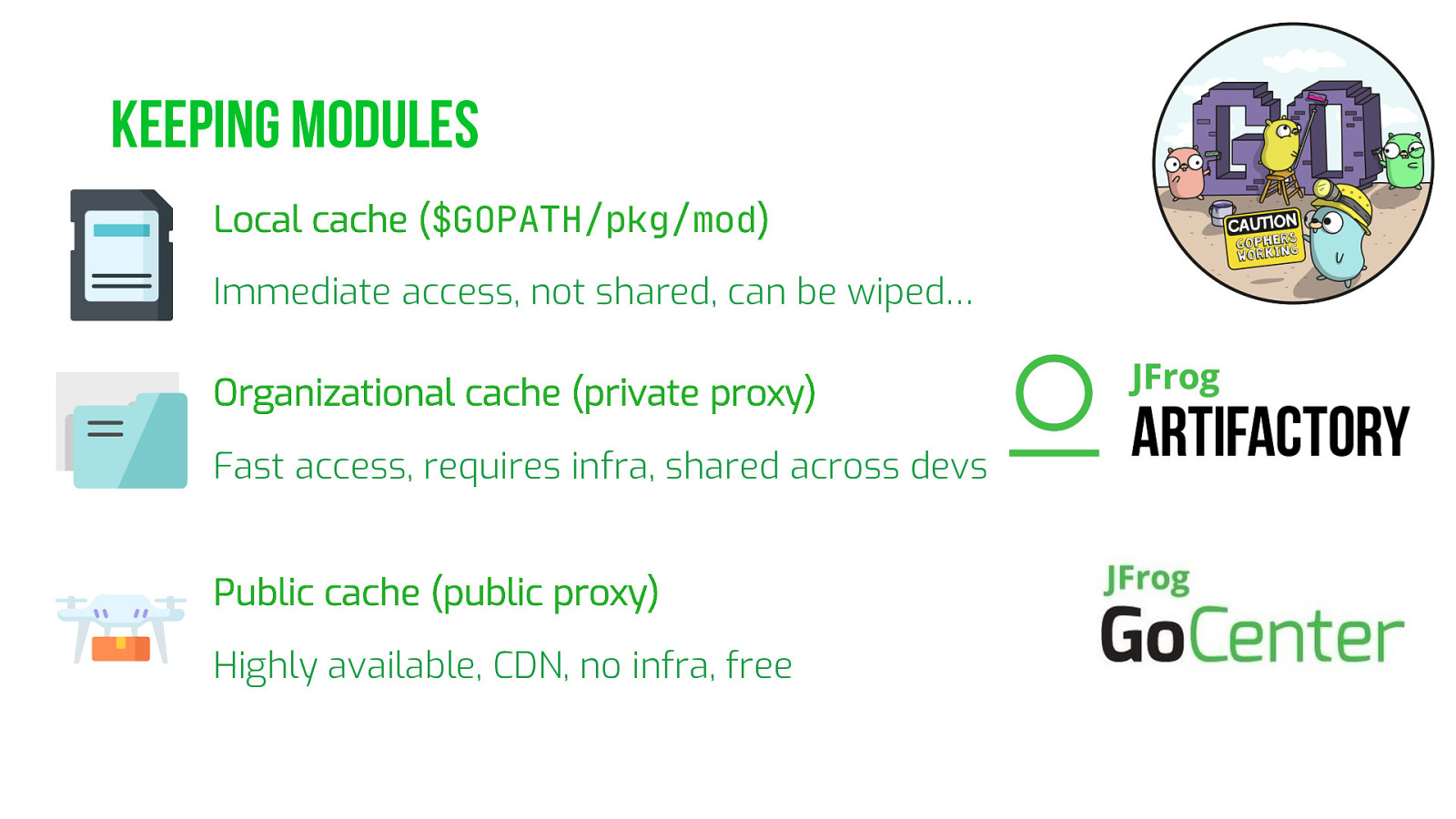
Keeping modules Local cache ($GOPATH/pkg/mod) Immediate access, not shared, can be wiped… Organizational cache (private proxy) Fast access, requires infra, shared across devs Public cache (public proxy) Highly available, CDN, no infra, free
Slide 52
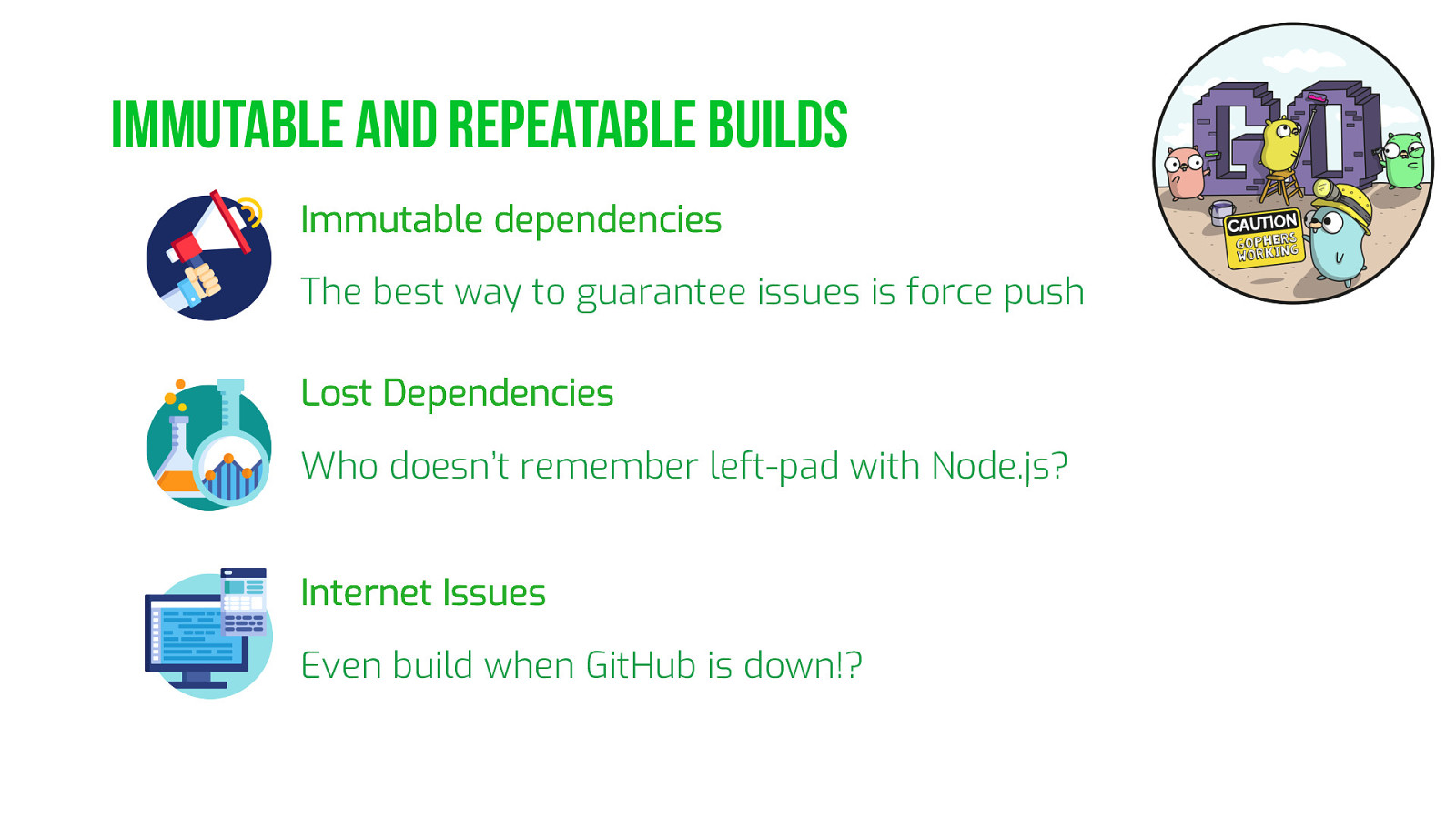
Immutable and repeatable builds Immutable dependencies The best way to guarantee issues is force push Lost Dependencies Who doesn’t remember left-pad with Node.js? Internet Issues Even build when GitHub is down!?
Slide 53

And also faster builds…
Slide 54
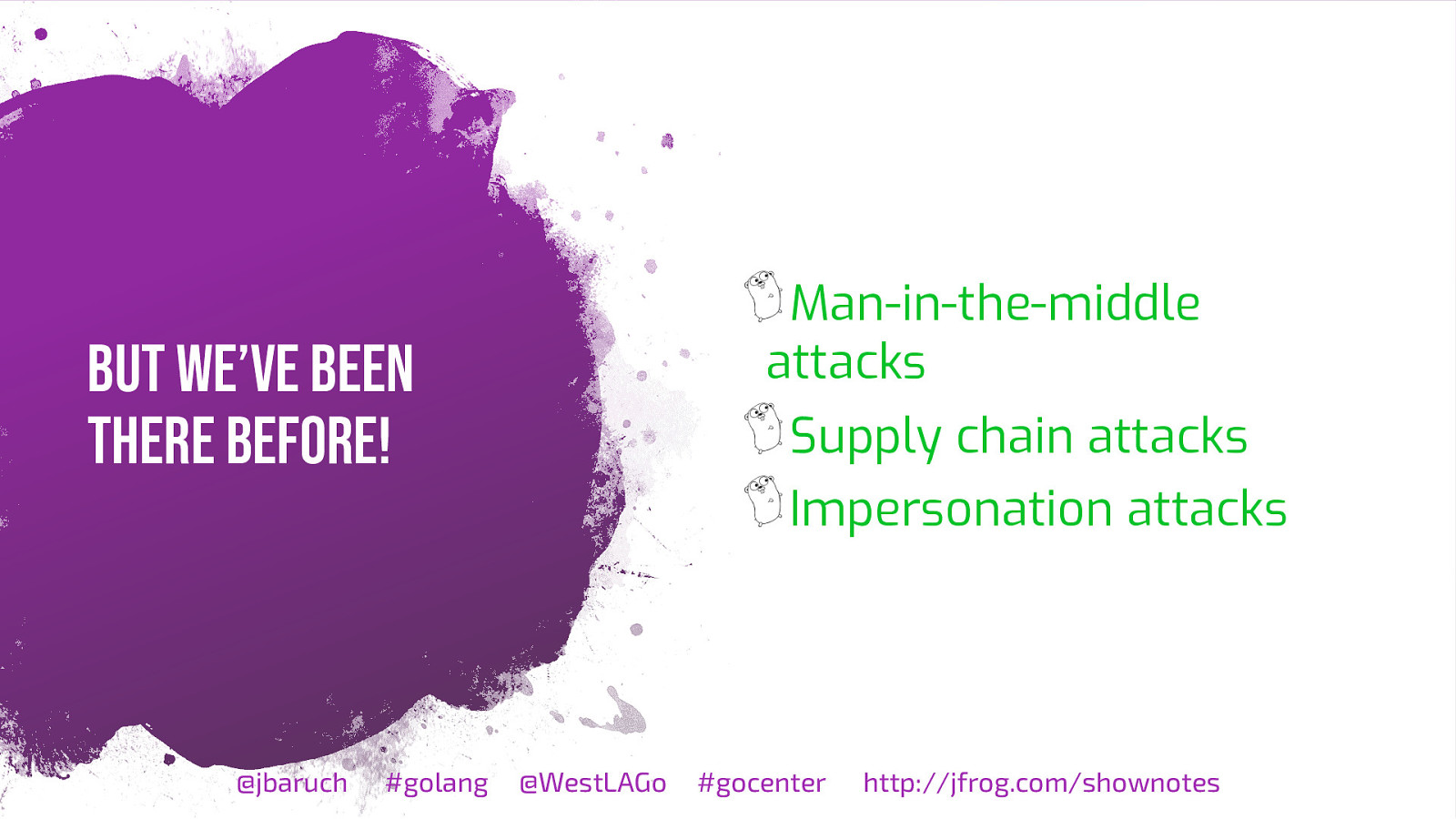
Man-in-the-middle attacks But we’ve been there before! @jbaruch #golang Supply chain attacks Impersonation attacks @WestLAGo #gocenter http://jfrog.com/shownotes
Slide 55
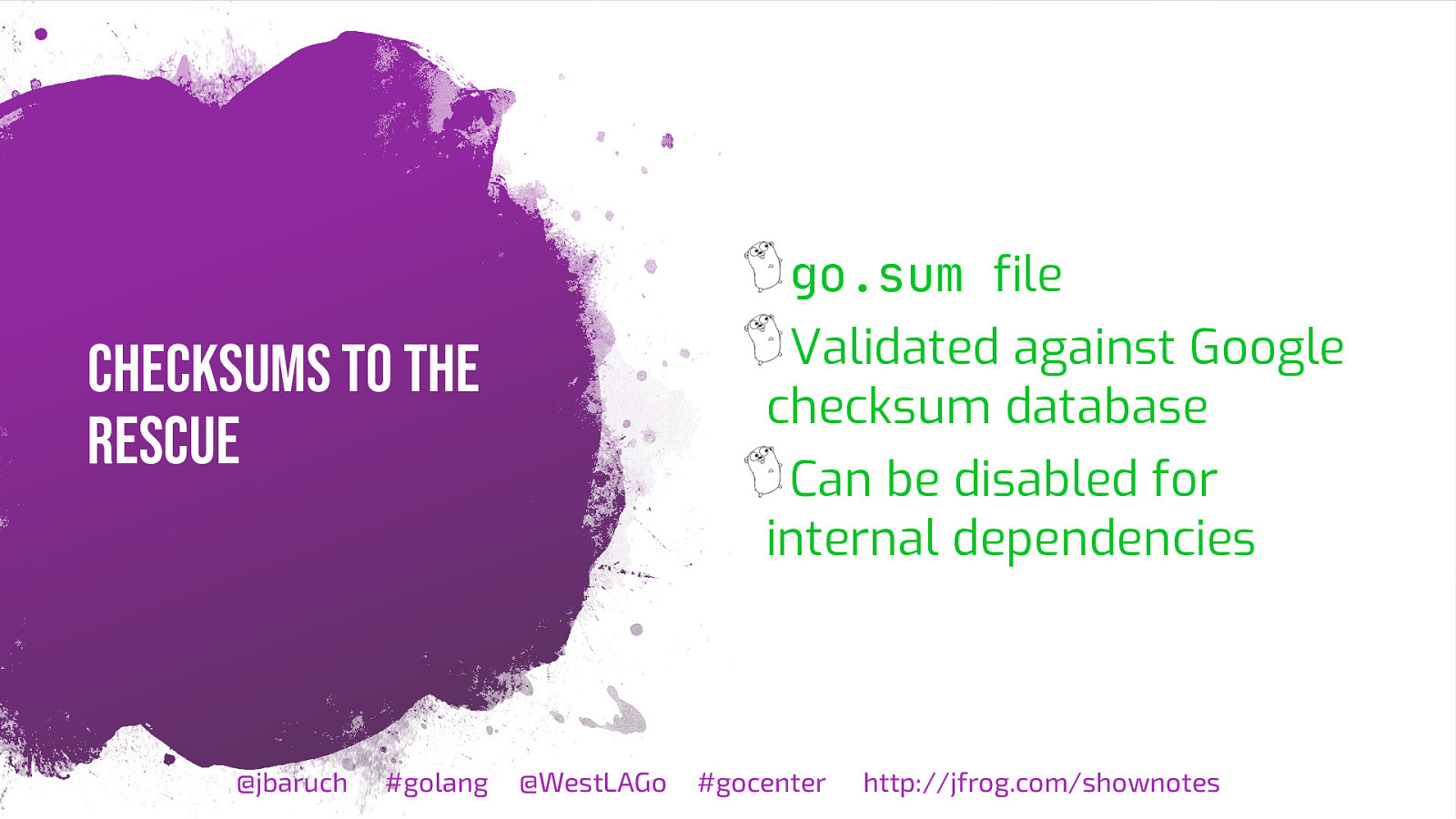
go.sum file Validated against Google checksum database Checksums to the rescue @jbaruch #golang Can be disabled for internal dependencies @WestLAGo #gocenter http://jfrog.com/shownotes
Slide 56

Twitter ads and q&A jfrog.com/shownotes @jbaruch @WestLAGo gocenter.io @jbaruch #golang @WestLAGo #gocenter http://jfrog.com/shownotes